A B C D E F G H I J K L M N O P Q R S T U V W X Y Z
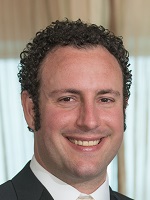
Jeremy Adler, MD, is a PGY-3 resident at Pennsylvania Hospital of University of Pennsylvania Hospital System. He studied Applied Math and Biology at Brown University and received his medical degree from Stony Brook University. His academic interests include molecular pathology and computational biology. He was awarded the 2019 George L. Harrison Fellowship to conduct proteomics research at the Royal Melbourne Hospital, Walter and Eliza Hall Institute of Medical Research.

Heather Agostinelli is the Associate Vice President of Strategic Revenue Operations at Xifin and is responsible for executive leadership and administration of expansive pathology and laboratory operations. With more than 22 years of experience dedicated specifically to pathology and laboratory revenue cycle management and 25+ years total in the healthcare industry, Heather has amassed an extensive knowledge base, implementing/managing RCM best practices and delivering operational excellence. Over her 25 years, Heather has worked closely with the executive leadership teams of the top clinical, outreach and independent laboratories in the country to share her RCM proficiencies and run their RCM processes along with her team. Prior to joining Xifin, Heather was the Director of National Lab Operations for Change Healthcare (formerly McKesson) where she acted as the business unit leader for an expansive lab portfolio. Heather holds a B.A. in Journalism Communications as well as a B.S. in Psychopathology from the University of South Carolina.
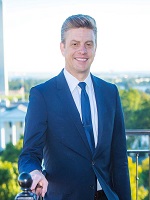
Jeff Allen, PhD, serves as the President and CEO of Friends of Cancer Research (Friends). During the past 20 years, Friends has been instrumental in the creation and implementation of policies ensuring patients receive the best treatments in the fastest and safest way possible. As a thought leader on many issues related to Food and Drug Administration, regulatory strategy and healthcare policy, he is regularly published in prestigious medical journals and policy publications, and has contributed his expertise to the legislative process on multiple occasions. Recent Friends initiatives include the establishment of the Breakthrough Therapies designation and the development of the Lung Cancer Master Protocol, a unique partnership that will accelerate and optimize clinical trial conduct for new drugs. Dr. Allen received his Ph.D. in cell and molecular biology from Georgetown University, and holds a Bachelors of Science in Biology from Bowling Green State University.

Beth Bailey is the Director of Strategic Development and Communications at TriCore Reference Laboratories. Beth oversees the organization’s efforts in strategic planning, workforce and leadership development, succession planning, marketing, communications and public relations. Additionally, Beth serves as faculty for Project Santa Fe Foundation, the non-profit collaborative driving the Clinical Lab 2.0 movement. Prior to TriCore, Beth managed the corporate education and consulting program for University of New Mexico’s Anderson School of Management as a part of their Executive and Professional Education Center. Additionally, she served 15 years as a consultant with Exec|Comm, a global communication skills training company based in New York City and San Francisco, where her clients included professionals representing diverse industries from international businesses such as Google, PwC, the Federal Reserve Bank, MedImmune, Johnson & Johnson, JPMorgan Chase, Cushman & Wakefield and IBM, as well as attorneys at some of the nation’s leading law firms.
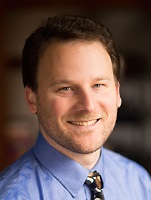
Geoffrey Baird, MD, PhD, is a professor and the interim chair of the Department of Laboratory Medicine at the University of Washington, Seattle. His clinical interests include clinical chemistry, toxicology, proteomics, immunohistochemistry and laboratory test utilization stewardship. He is also the co-director of the University of Washington's Clinical Chemistry Fellowship.

Vidya Balagopal, PhD, earned her doctoral degree in Molecular and Cellular Biology from the University of Arizona. For her graduate work she studied post-transcriptional regulation of gene expression in eukaryotes and identified a novel regulator of translation and messenger RNA decay. She completed her post-doctoral training at UConn Health and Johns Hopkins University where she made several contributions to the field of genomics. This includes the identification of novel genes involved in tumorigenesis using viral insertion and Next-generation sequencing (NGS), and the development of a novel assay, END-seq, for poly(A) tail length measurement. She is currently the Translational Genomics Scientist at the Genomic and Molecular Pathology Division at the University of Chicago. Here, she drives the translational research effort and has a keen interest in the development of novel NGS based assays for clinical diagnostics. Her current research interests include fusion detection, measurable residual disease as well as use of cell-free nucleic acids and epigenetic modifications as potential cancer biomarkers.
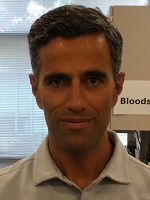
Niaz Banaei, MD, is currently a Professor of Pathology and Medicine at Stanford University and is the Medical Director of the Clinical Microbiology Laboratory at Stanford Medical Center. He is also the director of Stanford Medical Microbiology Fellowship and the associate program director of Stanford Clinical Pathology residency training.His research interests include development, assessment, and improvement of novel infectious diseases diagnostics. Over the past 15 years he has developed and implemented more than dozen nucleic acid amplification tests and conducted multiple research projects locally and internationally to advance the field of infectious diseases diagnostics.
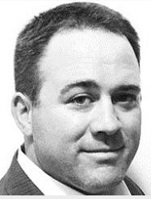
Nicholas Bevins, MD, PhD, is a Clinical Pathology Resident at UC San Diego. He obtained his M.D. from UC San Diego Medical School. He obtained his Ph.D. in Neurosciences from the Salk Institute for work on axon guidance with Greg Lemke. He has held numerous consulting roles in biotech, pharma, and diagnostics companies.
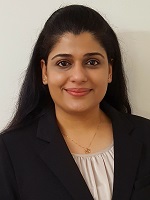
Shweta Bhavsar, MBBS, MD, is a Hematopathology Fellow at University of Pittsburgh Medical Center (UPMC). Dr. Bhavsar completed her medical school training at B.J. Medical College, Pune, India followed by pathology residency training at Grant Medical College and Sir J.J. Group of Hospitals, Mumbai, India. In the United States, she completed residency training in Anatomic and Clinical Pathology from UPMC. She will be pursuing the Molecular and Genomic Pathology Fellowship at UPMC in 2020-21.

Frederick Bieber, PhD, is a member of the Faculty of Medicine at Harvard University where he directs formal courses in genetics and forensics offered to Harvard undergraduate, graduate, medical students as well as to post-doctoral fellows. As a Medical Geneticist at Brigham and Women's Hospital, Dr. Bieber provides clinical diagnostic genetic laboratory testing to patients and their families in the Partners Healthcare System. His academic work focuses on the laboratory and statistical aspects of DNA-based human identification, with a focus on kinship analysis and its attendant legal, ethical, and policy implications. Dr. Bieber has served as an appointed member of the National DNA Databank of Canada Advisory Committee since its inception in 2000, as a member of the DNA Subcommittee of the New York State Forensic Commission, and as Chair of the Quality Assurance oversight committee of the United States Army DNA Identification Laboratory (AFDIL). He has served as a member of numerous state and federal forensic advisory boards, including the congressionally mandated FBI DNA Advisory Board, and the Scientific Advisory Board of the Virginia Department of Public Safety, the National Commission on Forensic Science and the U.S. Forensic Sciences Standards Board (FSSB). As a commissioned officer in the United States Army Reserve, Dr. Bieber served on active duty at the U.S. Army Criminal Investigation Laboratory (USACIL/Ft. Gillem, GA) and the Armed Forces DNA Identification Laboratory (AFDIL/Rockville, MD and Dover, DL). Professor Bieber was a member of the World Trade Center Kinship and Data Analysis Panel (KADAP) for the DNA-based identification of victims of the September 11th attack on the twin towers, and a member of the Hurricane Victim DNA Identification Expert Group (HVDIEG), assisting the Louisiana State Police in the DNA-based identification of victims of Hurricanes Katrina and Rita. Dr. Bieber has served as an expert witness in dozens of admissibility hearings and trials in state, federal, and military courts in the U.S. and abroad.

Gabriel Bien-Willner, MD, PhD, is the Medical Director of the MolDX program at Palmetto GBA, a Medicare Administrative Contractor (MAC). MolDX seeks to understand the molecular testing landscape to implement payer controls, coverage, and to set policy for affiliated MACs, which currently cover 28 states. He is a leader in the Precision Medicine space and practices as a Board-certified Anatomic Pathologist and Molecular Genetic Pathologist. Throughout his career, he has been active in research, development, and advancement of molecular diagnostic services, specifically next generation sequencing. He has worked closely with clinicians to develop clear clinical diagnostic and treatment pathways directing Precision Medicine programs for community cancer centers. Dr. Bien-Willner received his MD and PhD degrees from Baylor College of Medicine, with a PhD in Human Molecular Genetics. He completed his residency, fellowship, and attained a faculty appointment at Washington University in St. Louis prior to leadership roles in laboratory and biotech companies before joining Palmetto GBA.
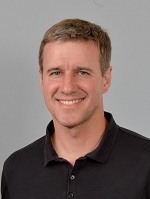
Timothy Blauwkamp, PhD, is Chief Scientific Officer and co-founder of Karius. Prior to Karius, he led research and lab operations for the long-reads DNA sequencing startup Moleculo, until their acquisition by Illumina where he led technology development for novel sequencing applications. Dr. Blauwkamp received his PhD in Biochemistry from the University of Michigan, followed by postdoctoral research at UofM and Stanford University focused on developing tools for understanding early development and guiding stem cell biology . Dr. Blauwkamp is an inventor of 9 issued patents and author of more than 25 publications across the fields of genomics, developmental biology, and infectious disease.

Aaron Bossler, MD, PhD, is a clinical professor in the Department of Pathology at the University of Iowa and member of the Holden Comprehensive Cancer Center. He serves as the Director of the Molecular Pathology Laboratory and the Molecular Genetic Pathology Fellowship Program. He is involved in coding, coverage, and reimbursement issues and is a member of the Association for Molecular Pathology (AMP) Economic Affairs Committee, the AMA Proprietary Laboratory Assay Technical Advisory Group, the Medicare Advisory Group for the Centers for Medicare and Medicaid services and has been a member of the AMA Molecular Pathology Advisory Group. He serves as the AMP representative to the CAP Pathology Coding Caucus and on the editorial board for The Journal of Molecular Diagnostics. His research interests center on the role of HPV infection in the development of cancer and the development of new molecular diagnostic assays.

Sarah Brnich is an MD-PhD student at the University of North Carolina at Chapel Hill in the laboratory of Dr. Jonathan Berg, MD, PhD within the Department of Genetics. She earned a B.S. in Biochemistry and Molecular Biology and Spanish from Dickinson College in Carlisle, PA. In 2012, Sarah was awarded the Fulbright U.S. Student Grant to study the molecular profiles of breast cancer in Latina women in Buenos Aires, Argentina. Her other laboratory experience includes work in the Clinical Pharmacology Program at the National Cancer Institute and in the Genomics Resource Center at the University of Maryland School of Medicine.<br><br>In the Berg lab, Sarah studies clinical variant science. In particular, as part of ClinGen’s Sequence Variant Interpretation Workgroup, Sarah led the development of recommendations for assessing functional evidence within the ACMG/AMP clinical variant interpretation framework. Additionally, Sarah is working to determine the functional consequence of germline genetic variants in hereditary cancer genes, with the long-term goal of improving the clinical interpretation of variants of uncertain significance. For this work, she received the ACMG Foundation’s 2019 David L. Rimoin Inspiring Excellence Award. Sarah plans to pursue a career as a physician-scientist, combining her clinical interests with her research in genetics.
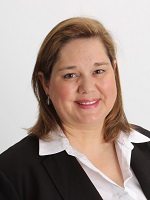
Trish Brown is a board certified, licensed genetic counselor with over two decades of experience in clinical genetics. As a clinical genetic counselor she has worked in prenatal, craniofacial and general genetics clinics. After leaving the clinic to take on strategic business roles, she has worked at LabCorp, DNADirect/Medco, Fabric Genomics and BeaconLBS. She gained extensive experience in operations, commercialization, product development, bioinformatics, regulatory compliance and lab benefit management.

Diana Bryk, MD is a molecular genetics fellow in the Division of Personalized Genomic Medicine at Columbia University Irving Medical Center. She graduated magna cum laude from Columbia College and received her MD from Columbia University Vagelos College of Physicians and Surgeons. She completed her residency in clinical pathology at New York Presbyterian/ Columbia University Irving Medical Center and is board-certified in clinical pathology. Her research has focused on the molecular characterization of melanoma, and identifying relevant biomarkers in Barrett's esophagus and esophageal carcinoma for early screening and surveillance.

Arturo Casadevall, MD, PhD, is Bloomberg Distinguished Professor and Chair of the W. Harry Feinstone Department of Molecular Microbiology and Immunology at the Johns Hopkins Bloomberg School of Public Health. Previously he served as Director of the Division of Infectious Diseases at Montefiore Medical Center, the University Hospital and Academic Medical Center for Einstein, from 2000-2006 and as Chair of the Department of Microbiology and Immunology from 2006-2014. Dr. Casadevall received both his M.D. and Ph.D. (biochemistry) degrees from New York University. Subsequently, he completed his internship and residency in internal medicine at Bellevue Hospital in New York. He then completed subspecialty training in infectious diseases at Montefiore and Einstein. The author of over 700 scientific papers, numerous books and book chapters, Dr. Casadevall’s major research interests are in fungal pathogenesis and the mechanisms of antibody action. In the area of biodefense, he has an active research program to understand the mechanisms of antibody-mediated neutralization of Bacillus anthracis toxins. In recent years Dr. Casadevall has become interested in problems with the scientific enterprise and with his collaborators shown that misconduct accounts for the majority of retracted publications. He has suggested a variety of reforms to the way science is done. Dr. Casadevall is the editor-in-chief of mBio, the first open access general journal of the American Society of Microbiology, and is on the editorial board of several journals including the Journal of Infectious Diseases and the Journal of Experimental Medicine. He has also served in numerous NIH committees including those that drafted the NIAID Strategic Plan and the Blue Ribbon Panel on Biodefense Research. He served on the National Academy of Sciences panel that reviewed the science on the FBI investigation of the anthrax terror attacks of 2001. He has also served as a member of the National Science Advisory Board for Biosecurity from 2005-2014 and currently co-chairs the NIAID Board of Scientific Counselors. In 2008, he was recognized the American Society of Microbiology with the William Hinton Award for mentoring scientists from underrepresented groups. In 2015, Dr. Casadevall was appointed a Commissioner to the National Commission on Forensic Science, the United States Department of Justice. He has been elected to AAAS Fellowship, the American Society for Clinical Investigation, the American Academy of Microbiology, the American Association of Physicians and the National Academy of Medicine and the American Academy of Arts and Sciences.

Howard Cash, Before moving into computational biology, Howard Cash studied music at the University of Pennsylvania and, after a period as Assistant Conductor with the Pennsylvania Opera Theater, Psychoacoustics at Stanford. At the forefront of commercial bioinformatics since 1984, he was Senior Engineer and head of Expert Systems at IntelliGenetics where seminal bioinformatics tools were developed. In 1988, he founded Gene Codes Corp, where he designed and developed the "Sequencher" program used in thousands of academic and commercial DNA sequencing labs in 90+ countries. Specialized versions of Sequencher have been developed for applications including human identification, mtDNA typing, therapy review based on HIV strain dominance in AIDS patients, and rapid characterization of H1N1 flu variants from the 2009 worldwide outbreak. He has a strong interest in bioethics and issues of genetic privacy and surveilance. He was appointed to the Michigan Commission on Genetics, Privacy and Progress to recommended legislation on issues related to genetic information. He chaired the committee on Property Rights, Ownership, Collection, Use and Storage. He was a member of the HUGO Council of the Human Genome Organization After 9/11 he designed analysis software to identify remains of victims of the World Trade Center attacks, with a database and analysis tools integrating primary sequence, SNP and STR data. More than 60 licenses for M-FISys (the Mass-Fatality Identification System, pronounced "emphasis") have been deployed to domestic and international forensic investigations including the sexual assault and murder of hundreds of women in Juarez, post-conflict identifications in Central America and Africa, international child trafficking, industrial accidents, and general criminalistics. With this background, he has lectured on Genetic Genealogy and searching unregulated, public databases for criminal investigations, most recently at the International Society for Computational Biology LA meeting in Chile.
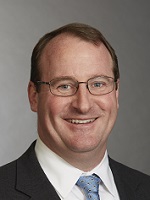
Sam Caughron, MD, lives in Kansas City with his wife and children where he is President & CEO of MAWD Pathology Group and Director of the MAWD Molecular Lab. In his practice, Dr. Caughron uses his training and expertise in Molecular Genetic Pathology to deliver state of the art genomic care in a community setting. He is recognized nationally for his insight and expertise in translating advanced technologies into viable, real-world clinical solutions. He has served on numerous national professional committees, boards and advisory panels for the Association for Molecular Pathology (AMP) as well as the College of American Pathologists (CAP). He currently serves on the Board of the AMP, as well as Chair of AMP's Economic Affairs Committee. He is also currently Vice President for the Missouri Society of Pathologists and a board member for the American Pathology Foundation (APF). Dr. Caughron received his medical degree and AP/CP training from Creighton University in Omaha, Nebraska and completed a fellowship in Molecular Genetic Pathology at Vanderbilt University in Nashville, Tennessee.
Kimberle Chapin, MD
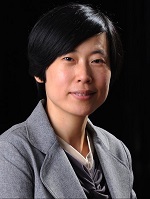
Nanying Che, PhD, is a vice director of the Department of Pathology at Beijing Chest Hospital, Capital Medical University, Beijing, China. She supervises molecular genetic tests on tissues and body fluids from patients mostly having tuberculosis or lung cancer. She received her PhD in Biotechnology from the Peking University, China. She is a professor in Beijing Tuberculosis and Thoracic tumor Research Institute, and an Associated professor in the Department of Clinical Pathology in Capital Medical University. Her research focuses on development of new molecular diagnostic technologies for tuberculosis and lung cancer. She has published over 20 peer-reviewed publications on diagnosis of tuberculosis, non-tuberculous mycobacterial diseases, and drug-resistant tuberculosis and detecting driver-gene mutations in lung cancer. She is the correspondence author for the “Chinese Expert Consensus on Pathological Diagnosis of Tuberculosis” published in 2017.
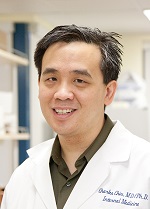
Charles Chiu, MD, PhD, is Professor of Laboratory Medicine and Medicine, Division of Infectious Diseases at University of California, San Francisco, Director of the UCSF-Abbott Viral Diagnostics and Discovery Center (VDDC), and Associate Director of the UCSF Clinical Microbiology Laboratory. Chiu currently heads a translational research laboratory focused on next-generation sequencing assay development for infectious disease diagnostics, discovery and investigation of emerging pathogens, including Borrelia burgdorferi (Lyme disease), Ebola virus, enterovirus D68, and Zika virus, and clinical / public health applications of new diagnostic technologies such as nanopore sequencing. He is also actively developing RNA sequencing approaches to detect and identify diagnostic profiles of the body’s response to infection. His work is supported by funding from the National Institutes of Health (NIH), Abbott Laboratories, Department of Defense, NASA/Translational Research Institute, philanthropic grants (Charles and Helen Schwab and Steven and Alexandra Cohen Foundations), and the California Initiative to Advance Precision Medicine. Dr. Chiu has authored more than 80 peer-reviewed publications, holds over 15 patents and patent applications, and serves on the scientific advisory boards for Mammoth Biosciences, Inc.

Wendy Chung, MD, PhD, is a clinical and molecular geneticist and the Kennedy Family Professor of Pediatrics and Medicine. She received her B.A. in biochemistry and economics from Cornell University, her M.D. from Cornell University Medical College, and her Ph.D. from The Rockefeller University in genetics. Dr. Chung directs NIH funded research programs in human genetics of obesity, breast cancer, pulmonary hypertension, autism, and birth defects including congenital diaphragmatic hernia, esophageal atresias, and congenital heart disease. She is a national leader in the ethical, legal, and social implications of genomics. She leads the Precision Medicine Resource in the Irving Institute At Columbia University. She has authored over 350 peer reviewed papers and 50 reviews and chapters in medical texts. She was the recipient of the Westinghouse Science Talent Search, American Academy of Pediatrics Young Investigator Award, the Medical Achievement Award from Bonei Olam, a career development award from Doris Duke, the NY Academy of Medicine Medal for Distinguished Contributions in Biomedical Science and the Rare Impact Award from the National Organization of Rare Disorders. Dr. Chung is renowned for her teaching and mentoring and received Columbia University’s highest teaching award, the Presidential Award for Outstanding Teaching. She was the original plaintiff in the Supreme Court case that overturned the ability to patent genes and served on the Institute of Medicine Committee on Genetic Testing. Dr. Chung enjoys the challenges of genetics as a rapidly changing field of medicine and strives to facilitate the integration of genetic medicine into all areas of health care in a medically, scientifically, and ethically sound, accessible, and cost effective manner.
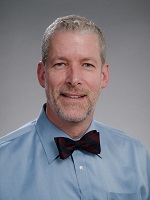
Brad Cookson, MD, PhD, is board certified in Clinical Pathology and a Fellow of the American Academy of Microbiology. As a Professor in the Departments of Laboratory Medicine and Microbiology at the University of Washington in Seattle, he has the privilege of teaching enthusiastic undergraduate and graduate students, resident physicians as well as clinical and post-doctoral fellows. His research and development work focuses on improving our ability to diagnose infectious diseases, unraveling genomic contributions to phenotypes and virulence attributes of bacterial pathogens, and understanding the cellular basis of inflammation. As Head of the Clinical Microbiology Division and Director of the Molecular and Next Gen Microbiology Laboratory, he and his talented staff and faculty collaborators develop detection systems, including Clinical Next Generation Sequencing, for diagnosing bacterial, fungal and parasitic infections. The goal is to improve the diagnosis and medical management of patients suffering from infectious diseases.
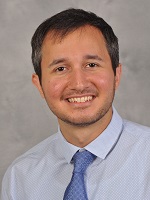
James Corines, DO, is a second year resident in anatomic and clinical pathology at the State University of New York (SUNY) Upstate Medical University who aspires to have a career in molecular genetic pathology. He did his undergraduate work at Johns Hopkins University, and received his DO at Touro College of Osteopathic Medicine in Harlem, NY. He has an interest in the development of new clinical diagnostic testing using next generation sequencing and bioinformatics analysis.

Emily Crawford, PhD, leads a basic research lab in the Infectious Disease Initiative at the Chan Zuckerberg Biohub in San Francisco, California, and holds an adjunct faculty appointment in the Department of Microbiology and Immunology at the University of California San Francisco (UCSF). Her group focuses on developing novel technologies for pathogen detection and helping to deploy them in a variety of research, clinical and public health settings. Dr. Crawford began her career developing expression profiling methods at the Broad Institute, and then went on to receive her PhD in 2012 from UCSF, where she used mass spec proteomics to investigate the evolution of programmed cell death in Jim Wells’ lab. She completed postdoctoral work in Joe DeRisi’s lab at UCSF, where she developed a plasmid-free CRISPR genome engineering system in the malaria parasite Plasmodium falciparum. In 2017 Dr. Crawford was hired as a Team Leader at the CZ Biohub, where she has developed the CRISPR-aided metagenomic NGS methods DASH and FLASH and deployed them to study diseases including malaria and tuberculosis. The primary goal of her work is to make these and other NGS-based infectious disease diagnostic methods more accessible to labs throughout the world doing surveillance, diagnostics, and outbreak response.
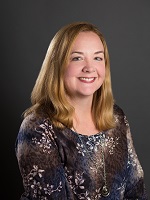
Kristy Crooks, PhD, is an Assistant Professor in the Department of Pathology, Director of the Colorado Center for Personalized Medicine Biobank Laboratory, and Director of the Heritable Disease section of the Colorado Molecular Correlates Laboratory at the University of Colorado. After earning her PhD at Duke University, she completed clinical laboratory fellowships at the University of North Carolina at Chapel Hill. She is board certified in Clinical Molecular Genetics and Clinical Cytogenetics by the American Board of Genetics and Genomics. Dr. Crooks’ research interests focus primarily on the application of emerging technologies for genetic diagnosis and on leveraging population screening to improve health outcomes.

Karissa Culbreath, PhD, received her PhD from Vanderbilt University and completed a medical and public health microbiology fellowship at the University of North Carolina, Chapel Hill. She is a diplomate of the American Board of Medical Microbiology. Dr. Culbreath is Director of Infectious Disease Diagnostics at TriCore Reference Laboratories and Associate Professor in the Department of Pathology at the University of New Mexico. Her research focus in test utilization and emerging methods in clinical microbiology. She is a tireless advocate for women and underrepresented minorities in science and medicine supports these efforts as an Associate Vice Chancelor for Diversity, Equity and Inclusion at University of New Mexico Health Sciences Center.

Kristina Cusmano-Ozog, MD, is the Director of the Molecular Diagnostics and Biochemical Genetics Laboratories at Children’s National Health Systems, where she also practices as a Medical Geneticist. She is an Assistant Professor of Pathology and Pediatrics at George Washington University. Her research and clinical work focus on diagnosing and treating individuals with inherited metabolic disorders. She holds a BS in Biochemistry from the University of Miami (Florida) and earned her MD at the University of South Florida, where she also completed training in pediatrics. She trained in Medical Genetics and Clinical Biochemical Genetics at Stanford University and obtained additional training in Clinical Molecular Genetics through the National Institutes of Health.
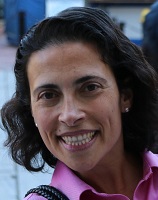
Dora Dias-Santagata, PhD, FACMG, is an assistant professor of pathology at Harvard Medical School and a practicing molecular pathologist at the Massachusetts General Hospital in Boston. She received her Ph.D. from the Mount Sinai School of Medicine, in New York, and trained as a postdoctoral fellow at the Brigham and Women’s Hospital, in Boston. Dr. Dias-Santagata is board-certified in laboratory genetics and genomics and has been on staff at MGH since 2007. She co-founded and co-directed the Translational Research Laboratory (TRL), a Cancer Center and Pathology CLIA-certified laboratory that pioneered the use of tumor genotyping to help inform cancer treatment decisions. Dr. Dias-Santagata has dedicated her career to the advancement of personalized cancer medicine and has participated in the development and clinical validation of next generation sequencing (NGS) assays for the analysis of solid tumors and hematopoietic malignancies, and for the detection of circulating tumor DNA. Dr. Dias-Santagata’s research interests in cancer genomics have contributed to the understanding of the genetic basis of aggressive disease and the development of acquired resistance to targeted therapies. She has published over 100 peer-reviewed scientific articles, mostly translational cancer research studies with several disease groups on the genetics of thyroid cancer, lung, brain and colorectal tumors, and of rare malignancies with unmet needs, among others.

Fei Dong, MD, is a surgical pathologist and molecular pathologist at Brigham and Women's Hospital. He received his medical degree at Case Western Reserve University and completed anatomic pathology and molecular pathology training at Massachusetts General Hospital and Harvard Medical School. His clinical responsibilities include surgical pathology and molecular diagnostics with specialization in the interpretation of next generation sequencing results in solid tumors. Research interests include developing new methods to understand molecular data, including tools to infer microsatellite instability and allogeneic contamination from NGS data, and the clinical application of molecular technology in patient care. Dr. Dong serves as associate director for the pathology residency program at Brigham and Women's Hospital.
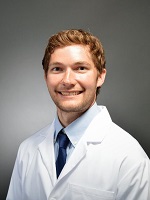
Liam Donnelly, MD, received his MD from the Robert Larner College of Medicine at The University of Vermont and is currently a pathology resident at the University of Vermont Medical Center. His research interests include molecular biology, immunology and cancer biology. Currently, in collaboration with Dr. David Seward, his research focuses on the molecular mechanisms responsible for immunotherapy resistance in non-small cell lung cancer.

Caitlin Dougherty

Charles Duan, JD, focuses his research on intellectual property issues. He was previously the director of the patent reform project at Public Knowledge, where he handled all aspects of patent policy ranging from outreach on the Hill to writing white papers and filing amicus briefs. Prior to this, he was a research associate to Professor Paul Ohm on an NSF-funded project that investigated the policy implications of newly proposed Internet architectures. He also worked as a patent attorney at Knobbe Martens. Charles is the author of A Five Part Plan for Patent Reform (2014). He received his associate bachelor’s degree in computer science from Harvard College and his juris doctor from Harvard Law School.

Eric Duncavage, MD, is the director of hematopathology at Washington University in St. Louis. He is board-certified in anatomic pathology, clinical pathology, molecular pathology, hematopathology, and clinical informatics and is active in both clinical care and translational research. Dr. Duncavage along with others in the department of Pathology and Immunology was instrumental in establishing the first next generation sequencing-based oncology diagnostics laboratory at an academic medical center in 2011. He has authored numerous manuscripts detailing clinical sequencing methods and is a world-recognized leader in field of sequencing-based diagnostics. Dr. Duncavage's grant-funded research is focused on understanding the clonal evolution and progression of myelodysplastic syndromes and acute myeloid leukemia including the application of molecular-based measurable residual disease (MRD) monitoring to determine treatment response and whole genome sequencing as a replacement for conventional cytogenetic evaluation.
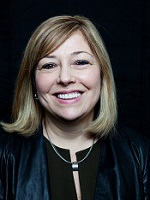
Lisa Edelmann, PhD, is the Chief Diagnostics Officer at Sema4 and holds the academic title of Associate Professor in the Department of Genetics and Genomic Sciences at the Icahn School of Medicine at Mount Sinai. Dr. Edelmann received her Ph.D. in Molecular Genetics from The Albert Einstein College of Medicine, and is certified in Clinical Molecular Genetics and Clinical Cytogenetics by the American Board of Medical Genetics and Genomics. Her scientific accomplishments include, elucidating the mechanism of chromosome 22q11 rearrangements and involvement in the first molecular sequencing of an entire human chromosome. She has also published extensively on Ashkenazi Jewish genetic disorders and has developed several novel tests, including a test for detection of silent carriers for spinal muscular atrophy, which is being licensed nationwide and abroad. Dr. Edelmann is a nationally recognized expert in population-based carrier screening, high-throughput clinical diagnostic sequencing as well as genomic disorders and clinical interpretation of copy number variation. She is well versed with the regulatory guidelines that govern clinical laboratories and has extensive experience with the process of validating LDTs and bringing them to market.

Philip Empey, PharmD, PhD, is the Associate Director of the Institute of Precision Medicine at the University of Pittsburgh and UPMC. He directs the Pharmacogenomics Center of Excellence and leads the PreCISE-Rx and Test2Learn teams to implement pharmacogenomics clinical, research, and educational initiatives. As a clinician-scientist in the Department of Pharmacy and Therapeutics of the School of Pharmacy, Dr. Empey conducts NIH-funded clinical and translational research aimed at understanding the mechanisms of the variability in drug response to improve medication-related outcomes in critically-ill patients. His research interests include large scale population preemptive testing, pharmacogenomics clinical implementation, collection of medication-related phenotype information, genotype-phenotype discovery, and understanding the role/impact of xenobiotic transporters following neurological injury.
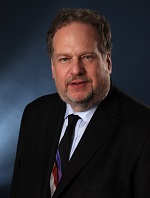
Mark Evans, MD, is President of the Fetal Medicine Foundation of America, Professor of Obstetrics & Gynecology at Mt. Sinai School of Medicine, President of the International Fetal Medicine and Surgery Society Foundation, and President of Comprehensive Genetics, PLLC. He has helped developed multiple procedures for prenatal diagnosis, screening and fetal therapy including CVS, fetal muscle biopsy, fetal reduction, percutaneous and open fetal surgery, pharmacologic and stem cell fetal therapies. He is considered one of the major key opinion leaders in the fields of prenatal diagnosis, screening, and fetal therapy world-wide. He routinely lectures every year all over the world and is regularly invited as visiting professor to national and international obstetrics and genetics meetings. Dr. Evans has over 1200 scientific publications including 30 text books. He has had multiple NIH grants including being a principal investigator for the search for fetal cells in maternal blood. He has received numerous national and international honors including receiving the President’s Award for Achievement from the Society for Gynecologic Investigation and was elected President of the International Fetal Medicine and Surgery Society twice.
1.jpg)
Mark Evans was raised in Salt Lake City, Utah and attended Stanford University, where he earned a B.S. in Biology. He then received his M.D. from the University of Utah School of Medicine and is currently a fourth-year AP/CP pathology resident at the University of California, Irvine. Mark has been accepted to complete fellowship training in hematopathology and molecular genetic pathology at Brigham and Women's Hospital and at MD Anderson Cancer Center. His current research interests include breast implant-associated anaplastic large cell lymphoma and HIV-associated malignancies.

Nicole Faulkner, PhD, FACMGG

Helen Fernandes, PhD, is an Associate Professor of Pathology in the Department of Pathology and Cell Biology and the Co-director of Genomic Oncology in the Personalized Genomic Medicine Laboratory, at Columbia University Medical Center. Prior to her current position, Helen was at Weill Cornell Medicine in New York and Rutgers University in New Jersey. She has over 20 years of experience in molecular pathology that ranges from infectious diseases, to oncology and genomics. Much of her focus is on validation and implementation of diagnostic assays along with training and education of molecular diagnosticians. Dr. Fernandes is passionate about Quality Control in molecular diagnostics and has been invited to present at meetings and webinars globally. She has inspected clinical laboratories nationally and internationally and is an active member of several organizations including, Association for Molecular Pathology (AMP) and the American Association for Clinical Chemistry (AACC).
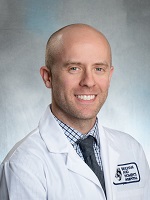
Adam Fisch, MD, PhD, is a clinical fellow at the Harvard-wide molecular genetic pathology fellowship at the Brigham and Women's Hospital. Following the completion of his MD and PhD from the Medical Scientist Training Program at the University of Maryland, he began residency training in anatomic pathology at the Massachusetts General Hospital. His clinical and research interests involve the use of molecular techniques, in conjunction with surgical pathological findings, to discover biological markers and pathways in tumors of the head and neck. Following his molecular genetic pathology fellowship, he will complete his training in anatomic pathology as well as a fellowship in head and neck pathology at the Massachusetts General Hospital.
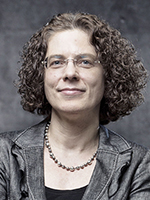
Birgit Funke, PhD, FACMG, received her Ph.D. in molecular genetics from the University of Würzburg, Germany and trained as a postdoctoral fellow at the Albert Einstein College of Medicine in New York where she identified the gene for 22q11 deletion syndrome. She subsequently completed a fellowship in Clinical Molecular Genetics at Harvard Medical School and has dedicated her career to personalized genetic medicine since then. She served as the director of Clinical Research and Development at the Laboratory for Molecular Medicine (LMM) and was among the first worldwide to implement clinical next generation sequencing (NGS). She also has a extensive experience in clinical diagnostic testing for inherited cardiovascular disorders and is co-chairing the cardiovascular domain working group of the Clinical Genome Resource (ClinGen) whose mission is to harmonize and centralize knowledge resources for genomic medicine. Today, Dr. Funke is Vice President of Clinical Affairs at Veritas Genetics and part time Associate Professor of Pathology at Harvard Medical School. Her long term goal is to use genomic testing for disease prevention.
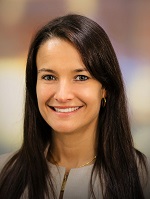
Larissa Furtado, MD

Guillermo Garcia-Manero, MD, is the Dr. Kenneth B. McCredie Chair in Clinical Leukemia Research in the Department of Leukemia at the University of Texas MD Anderson Cancer Center. He also serves as the Chief of the Section of Myelodysplastic Syndromes, Leader of the AML/MDS Moon Shot Program, Program Director of the Leukemia Fellowship Program, and Chair-elect of the Faculty Senate. Dr. Garcia-Manero was born in Spain and received his medical degree at the University of Zaragoza and at the Royal Free Hospital in London, UK. He performed his internship and residency in Internal Medicine at Thomas Jefferson University Hospital, a fellowship in Hematology and Medical Oncology at the Cardeza Foundation for Hematology Research, Sidney Kimmel Cancer Center, where he served as chief fellow. In 1999, he became Assistant Professor in the Department of Leukemia at MD Anderson Cancer Center . Dr. Garcia-Manero focuses on the understanding the cellular and molecular biology of MDS and AML with an aim to improve therapeutic options for patients with these disorders. His work has been funded by NIH, DoD, LLS, CPRIT, and the MDS/AML Moon Shot project. His last H-index is 119 and his i10-Index is 630 with over 58,000 citations to his work. Currently, he is PI or Co-PI on over 25 active clinical trials focusing on AML and MDS. He directs one of the largest single institution unit for patients with MDS in the world, with over 400 patients referred annually, and maintains one of the busiest clinics at MD Anderson. Dr. Garcia-Manero has received a number of significant awards, such as The Otis W. and Pearl L. Walters Faculty Achievement Award in Clinical Research and the Emil J. Freireich Award for Excellence in Translational Research and has also been recognized as one of the Best Doctors in America since 2007.
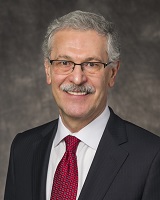
Mahmoud Ghannoum, PhD, EMBA, FIDSA, FAAM, is the Director of the Medical Mycology Center of Excellence at Case, past President of the Medical Mycological Society of the Americas. Dr Ghannoum received the Rohda Benham Award for his meritorious contributions to medical mycology from the MMSA. He is an entrepreneur-scientist who launched a number of companies focusing on the treatment of biofilm infections and microbial dysbiosis as it relates to gut health. He coined the term ‘Mycobiome”. Author of Total Gut Health, Countryman Press, December 2019.

Richard Goering, PhD, is Professor and Chair of the Department of Medical Microbiology and Immunology at Creighton University School of Medicine in Omaha, Nebraska. With over 150 abstract presentations, a similar number of publications, and a Scopus h-index of 43 (Google Scholar h-index 54), he is internationally recognized for his research on mechanisms of antibiotic resistance and the epidemiology of problem pathogens, especially including the staphylococci. He was first in the United States to champion the use of pulsed field gel electrophoresis (PFGE) for microbial epidemiological surveillance and he is a co-author of the internationally recognized guidelines for the interpretation of PFGE data. His current research centers on the use of DNA sequence-based approaches (especially including whole genome sequencing) for the identification and tracking of problem pathogens. With colleagues in the UK, he is senior author of the “Mims Medical Microbiology and Immunology” textbook (6th edition just released) which has been translated into multiple languages and used in the education of students in the health professions throughout the world.

Ivana Gojo, MD, is an Associate Professor of Oncology at Johns Hopkins University (JHU). Dr. Gojo’s primary research interests include the development and translation of novel therapies into phase I/II clinical trials and conduct of the correlative mechanistic studies seeking to decipher novel pathogenic pathways in acute leukemias. As part of these efforts, she have successfully initiated and conducted multiple novel clinical trials through NCI/CTEP and industry. Most recently, her translational research efforts have concentrated on understanding the mechanisms of immune escape in patients with acute myeloid and lymphoid leukemias and ways to target them to unleash anti-leukemia immunity. She is co-PI on the ET-CTN UM1 grant supporting early clinical trials and serves as a Co-Director of the Leukemia Drug Development Program at JHU.
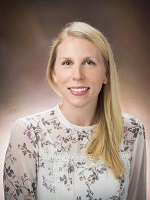
Erin Graf, PhD, is a Senior Associate Consultant at the Mayo Clinic Hospital, Arizona. She was formerly the Director of the Infectious Disease Diagnostics Laboratory at the Children’s Hospital of Philadelphia. Dr. Graf completed her Ph.D. in Cell and Molecular Biology in the Perelman School of Medicine at The University of Pennsylvania studying HIV latency. She then went on to complete an ASM accredited postdoctoral training program in medical and public health microbiology at ARUP Laboratories and the University of Utah. Dr. Graf is board certified in medical microbiology. Her research interests include sequence-based diagnostics in clinical microbiology, including the applications of next generation sequencing and metagenomics, as well as emerging technologies for rapid diagnostics.

Alex Greninger, MD, PhD, MPhil, MS, is an Assistant Professor in the Department of Laboratory Medicine at the University of Washington and Associate Director of the clinical virology laboratories. He did his dual medical and graduate training at the University of California-San Francisco and has master's degrees in epidemiology from Cambridge University and immunology/biological sciences from Stanford University. He has a 13 year history in metagenomics, starting out in the discovery of new human viruses and transitioning to the broad detection of infectious organisms in clinical material.
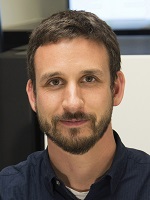
Malachi Griffith, PhD, completed a Bachelor of Science with Honors in Biochemistry and Biology in 2002 at the University of Winnipeg, followed by additional formal training in computer science. He worked as a molecular biologist and then as a computational biologist during 2003-2004 before beginning a PhD in Medical Genetics and Bioinformatics at the University of British Columbia under the mentorship of Dr. Marco Marra. He defended his PhD thesis in December, 2009, and joined Washington University School of Medicine in 2011. Dr. Griffith now has more than 14 years of experience in the fields of genomics, bioinformatics, data mining, and cancer research. He has published over 80 studies, received numerous research awards and honors and held several large grants including an NIH K99/R00 Career Development Award and V Scholar Award. He has mentored more than 30 bioinformatics trainees and taught more than 500 as an instructor for Cold Spring Harbor Laboratories and the Canadian Bioinformatics Workshops. Dr. Griffith’s research is focused on improving our understanding of cancer biology and the development of personalized medicine strategies for cancer using genomics and informatics technologies. Dr. Griffith’s lab has made substantial contributions to open source and open access resources for cancer research. Recently, the development of bioinformatics for immunogenomics has become a major focus of his lab.
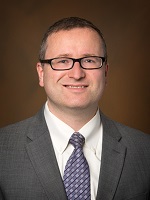
Grzegorz Gurda, MD, PhD, is a practicing surgical pathologist at Gundersen Lutheran Hospital, and serves as a medical director for the biobank and molecular oncology at the Gundersen Medical Foundation/Kabara Cancer Institute. He was elected as a fellow of the College of American Pathology and is an adjunct assistant professor at University of Wisconsin - La Crosse (UW-L). My interests lie at the intersection of endocrinology and neoplasia, particularly gastroenterology and women's health (breast and GYN oncology). My goal is to combine molecular diagnostics and histomorphology analytics to improve care for important, but hard to recognize forms of common cancers.
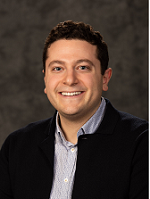
Elan Hahn, MD, is an Anatomical Pathology resident at the University of Toronto. He completed his undergraduate medical training at the Michael G. DeGroote School of Medicine, McMaster University. His research interests include molecular pathology, surgical pathology, and quality improvement. He is currently applying to Molecular Genetic Pathology fellowships in the United States.
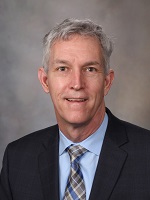
Kevin Halling, MD, PhD, is a molecular pathologist and a Professor in the Division of Laboratory Genetics at the Mayo Clinic in Rochester, Minnesota. He is a co-director of the Genomics Laboratory which performs molecular oncology and hereditary disorder testing. He received his M.D. and Ph.D. from the University of Kansas and completed an Anatomic and Clinical pathology residency and Clinical Molecular Genetics fellowship at the Mayo Clinic. His primary area of interest is in the development of genetic tests that can be used for the diagnosis and treatment of sporadic and hereditary cancer. He and his team have developed a clinical RNA Seq assay that can be used to detect gene fusions in patients with various types of malignancies and are also working on other clinical applications of RNA-seq and other RNA testing methodologies such as Nanostring. Dr. Halling has published over 100 papers that mostly relate to genetic testing of cancer.
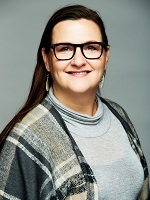
Susan Hancock, MS, is a licensed, board-certified genetic counselor with nearly two decades of experience in clinical and industry settings. She has a wealth of experience providing direct patient care as a prenatal genetic counselor in a large prenatal diagnosis center, where she established a deep respect for the needs of proper education for patients and providers related to available genetic testing technology. In her current role as Clinical Product Specialst for Noninvasive Prenatal Screen at Myriad Women's Health, she utilizes her clnical knowledge to further research, education, and product development related to cell-free DNA technology.

Duane Hassane, PhD, is an assistant professor of computational biomedicine in medicine at Weill Cornell Medicine and the Director of Leukemia Genomics at the Englander Institute for Precision Medicine (EIPM). His team uses advanced genome sequencing and analytics to improve precision medicine efforts in early detection, risk stratification, and prediction of impending relapse in cancer. He has also co-launched the Institute's Molecular Aging Initiative, which aims to identify age-associated risks that modify cancer outcomes such as clonal hematopoiesis. This research has most recently led to the discovery of a molecularly defined and potentially druggable pre-malignant state in acute myeloid leukemia (AML) evident 10 years prior to diagnosis. His efforts have led to the development of several tests that aim to generate a panoramic view of cancer and cancer subclones. He has been the lead developer of several novel next generation sequencing (NGS) tests and analyical pipelines that enable panoramic portraits of the clonal architecture of cancer and clonal hematopoiesis, including the EIPM's new flagship ExACT-2 test for augmented whole exome sequencing designed for clinical oncology.
Daniel Higginson, MD, is a physician scientist in the Department of Radiation Oncology at Memorial Sloan Kettering Cancer Center. His clinical interests include radiosurgery and stereotactic body radiotherapy for the treatment of diverse solid tumor malignancies. In his laboratory, he studies novel biomarkers of response to radiation therapy, including cell free DNA approaches, as well as basic mechanisms of DNA double strand break repair in response to therapeutic radiation.
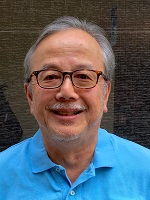
Russell Higuchi, PhD, is a molecular biologist with > 30 years‘ experience in the molecular diagnostics industry, going back to its beginnings in PCR. He is currently a Distinguished Fellow in Cepheid’s Innovation group. Prior to working in industry, he obtained his Ph.D. in molecular biology from UCLA. His thesis work was in the then nascent field of recombinant DNA technology. During his postdoctoral training with Allan Wilson at UC Berkeley, he published the first paper in the field of Ancient DNA. This paper applied recombinant DNA technology to the recovery of DNA sequences of an extinct zebra known as the quagga. The DNA sequences allowed the correct placement of this species in the family tree of zebras and horses. He then went on to work at Cetus Corp. with Henry Erlich, winner of the 2000 AMP award for Excellence in Molecular Diagnostics, and with Kary Mullis, co-winner of the 1993 Nobel Prize in Chemistry for his invention of PCR. While at Cetus, he worked on diverse applications of PCR including to forensic identification, DNA sequencing and genetic engineering. His most significant work was the invention of real-time PCR, which made the PCR process completely self-contained and quantitative. After Cetus he worked for Roche where he continued to help establish real-time PCR as the standard molecular diagnostics technology as well as working in disease-associated gene discovery. He began working at Cepheid ten years ago, where he has been helping apply and improve Cepheid’s fully automated, near-patient molecular diagnostic technology. Cepheid technology has allowed the widespread distribution of molecular diagnostics including into the developing world.
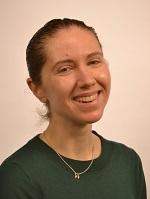
Sarah Hill, MD, PhD, is an Instructor at Dana-Farber Cancer Institute and Associate Pathologist at Brigham and Women's Hospital specializing in gynecologic pathology. Her independent research program at Dana-Farber focuses on using patient-derived epithelial ovarian cancer organoid models to understand the role of the DNA damage response in ovarian carcinogenesis and therapeutic sensitivity. She has developed media and growth conditions for patient-derived organoid models along with functional assays to profile the DNA damage repair capacity of these tumors and understand how specific repair defects lead to specific types of therapeutic sensitivity.

Fei Huang is a staff technician in the Department of Laboratory Medicine at Zhongshan Hospital, Fudan University. Her clinical roles comprise development, validation, implementation and quality assurance of molecular diagnostics tests. Her research focuses on utlizing molecular diagnostics techniques to detect genetic alterations in patients with colorectal cancer, which helps disease management and treatment.


John Iafrate, MD, PhD, is a Professor of Pathology at Harvard Medical School and is the Vice Chair of Academic Affairs at the Massachusetts General Hospital (MGH) Pathology Department. Dr. Iafrate received his MD/PhD dual degree from the State University of New York at Stony Brook in 2000 and was trained in anatomic and molecular genetic pathology at Brigham and Women’s Hospital. Dr. Iafrate is a board-certified Pathologist, and has been on staff at MGH since 2005. His research is focused on lung and brain tumors, where he has been closely involved in the clinical development of crizotinib and companion diagnostics in ALK- and ROS1 positive lung cancers. His lab has developed several technologies for sequencing tumors, including SNaPshot and the next-generation sequencing-based Anchored Multiplex PCR, both techniques have been widely used in the molecular diagnostics community. His lab has focused recently on the development of sequencing assays to detect circulating tumor DNA.

Marcin Imielinski, MD, PhD, is an Assistant Professor of Computational Genomics at Weill Cornell Medicine, Assistant Attending Pathologist at New York Presbyterian, and Core Member at NYGC. He is a board-certified certified Clinical and Molecular Genetic Pathologist. His laboratory studies the causes and consequences of complex structural variation in cancer using whole genome sequencing and chromatin profiling. Prior to starting his lab in 2015, he completed his residency and fellowship in Pathology and postdoctoral training in cancer genomics at Massachusetts General Hospital, Harvard Medical School, and the Broad Institute. He received his PhD in Genomics and Computational Biology and MD from University of Pennsylvania and a BS in Computer Science from Rutgers College.
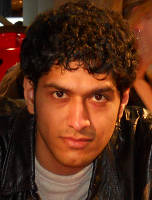
Miten Jain, PhD, is an Assistant Research Scientist at University of California Santa Cruz, and works with the UCSC Nanopore Group. His research interests include optimizing nanopore technology and sequencing devices; analyzing bacterial and human epigenomes; and developing novel methods to detect regions of interest and base modifications in genomic DNA and native RNA. The overarching goals of this research are to contribute towards better clinical methods for diagnoses and treatment.
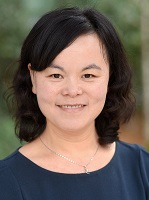
Jianling Ji, MD, MS, is an Assistant Professor of Clinical Pathology, Keck School of Medicine of the University of Southern California, and assistant director of the Clinical Genomics Laboratory in the Center for Personalized Medicine in the Department of Pathology and Laboratory Medicine, Children’s Hospital Los Angeles. Dr. Ji received her M.D. and M.S. degrees at Nantong Medical College of Nantong University and completed her fellowship training in Clinical Molecular Genetics and Clinical Cytogenetics at the University of California Los Angeles (UCLA) and Cedars Sinai Medical Center. She holds American Board of Medical Genetics and Genomics certifications in both Clinical Molecular Genetics and Clinical Cytogenetics. She is a member of ACMGG, ASHG, AMP and CGC. Dr. Ji’s primary interest is clinical application of next generation sequencing and microarray technologies in molecular diagnosis of rare genetic disorders and in pediatric brain tumors.
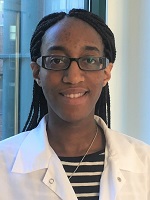
Monique Johnson, MSc, received her BSc in Forensic Science specializing in Biology from the University of Toronto Mississauga followed by a MSc in Forensic Science from King's College London. She currently works as a Research Technologist at the Hospital for Sick Children in Toronto, Canada. Her work deals in translational diagnostic research specifically working in creating molecular diagnostic tests for genetc mutations in subsets of brain tumors. Her current project is on developing a liquid biopsy tool for low grade and high grade glioma patients which will be heard in her presentation as well as developing point mutation tests using droplet digital PCR.

Terri Jones, is an anatomic and clinical pathology chief resident at the University of Pittsburgh Medical Center. She received her MD at the University of Pittsburgh School of Medicine and her Bachelor's in Biological Sciences at Carnegie Mellon University. In her future career, she is interested in marrying molecular pathology with gynecological and breast pathology.
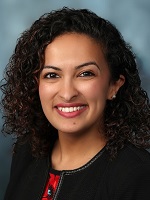
Sabah Kadri, PhD, is the Director of Bioinformatics and Assistant Professor of Pathology at Lurie Children’s Hospital of Chicago, where she leads efforts in bioinformatics for precision medicine in pediatrics, including setting up clinical genomics tools and pipelines in the cloud. Her team designs bioinformatics and machine learning solutions for pediatric somatic and germline testing using panel and whole genome sequencing (WGS). She was previously the Director of Bioinformatics at the Genomic and Molecular pathology division at the University of Chicago, where she led the design, implementation and support of clinical testing for adult oncology including development of novel tools and pipelines for cutting-edge next generation sequencing (NGS) applications, such as UCM-OncoPlus, a comprehensive diagnostic 1200 gene panel that can perform variant calling, copy number, gene-fusion, and MSI detection. With a background in computer engineering, Dr. Kadri earned a PhD in Computational Biology at Carnegie Mellon University (Pittsburgh, PA) using an interdisciplinary approach to study small noncoding RNAs in echinoderm development. In 2012, she joined the Lander Lab at the Broad Institute, where she continued working on noncoding RNA populations such as large non-coding RNAs (lincRNAs) and end-RNASeq technologies. Dr. Kadri has significant expertise in NGS technologies and her research work has been focused on using the power of NGS methods innovatively in the field of computational genomics.
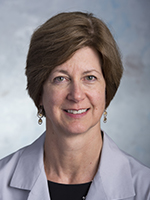
Karen Kaul MD, PhD, is Chair of the Department of Pathology and Laboratory Medicine at NorthShore and is a Clinical Professor of Pathology at the University of Chicago’s Pritzker School of Medicine. Dr. Kaul is board-certified in Anatomic Pathology, and Molecular Genetic Pathology. Following a postdoctoral fellowship at the NCI and pathology residency training at Northwestern, Dr. Kaul established one of the earliest Molecular Diagnostics laboratories in the US; she and her lab have been deeply involved in the development of laboratory tests for cancer, heritable conditions, microbial diseases, and antimicrobial susceptibility. She has been significantly involved in education, regulation, and standardization of the practice of molecular pathology, and has served on FDA, CLIAC, MEDCAC, and other panels, and testified before the Senate HELP committee on LDPs in 2016. She is a past president of the Association for Molecular Pathology, and served as Editor in Chief of the Journal of Molecular Diagnostics until 2010. She is the recipient of the 2008 Association for Molecular Pathology Leadership Award. She was an ELAM (Executive Leadership in Academic Medicine) fellow in 2011-2012. In 2011, she was appointed a Trustee of the American Board of Pathology where she is involved in professional examination and certification efforts, and is the past President of the ABP. She also served on the ACGME Residency Review Committee for Pathology, and Milestones committees, and currently leads the Association for Pathology Chairs GME committee. Dr. Kaul served as residency program director for 18 years, and served on PRODS council before becoming departmental chair in 2012. As Chair, she has led departmental efforts to improve laboratory efficiency and utilization, and maximize the impact of the laboratory on clinical care. She continues to practice and advocate for Molecular Pathology.
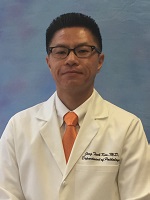
Jong Kim, MD, MS, is a board-certified Anatomic and Clinical Pathologist and board-eligilble in Clinical Informatics. He is currently a Molecular Pathology Genetics fellow at Cedars-Sinai Medical Center in Los Angeles, CA. He completed his AP/CP pathology residency and Biomedical Informatics Degree at the University of Florida. His research interests include molecular and oncologic genetics, bioinformatics, and clinical informatics.
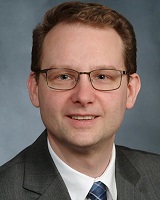
Michael Kluk, MD, PhD, is a Co-Director of Molecular Pathology at Weill-Cornell Medicine/New York Presbyterian Hospital. His also the Program Director of the Molecular Genetic Pathology Fellowship. He has ABP certifications in Molecular Genetic Pathology, Hematopathology, Anatomic Pathology and Clinical Pathology. The Molecular Pathology Laboratories at Weill-Cornell Medicine/New York Presbyterian Hospital provide a wide variety of traditional molecular assays and also provide several next generation sequencing panels.

Peter Kraft, PhD, is Professor of Epidemiology and Biostatistics and Director of the Program in Genetic Epidemiology and Statistical Genetics at the Harvard T.H. Chan School of Public Health. His research concentrates on the design and analysis of genetic association studies, with particular emphasis on the genetic epidemiology of cancer. He has participated in many international consortia studying genetics and environmental exposures in relation to cancer risk over the last fifteen years, including the NCI’s PanScan and Cancer Genetic Markers of Susceptibility (CGEMS) projects; the Breast Cancer Association Consortium (BCAC); and the Cancer Risk Estimates Related to Susceptibility Genes (CARRIERS) consortium, which is sequencing cancer predisposition genes in a large population-based breast cancer case-control sample. His methodological work has focused on efficient and interpretable gene x environment interaction analyses; building and evaluating risk prediction models incorporating high dimensional genetic data; and integrative analyses combining genetic and environmental risk factors with intermediate biomarkers (gene expression, metabolomics). He has taught courses in genetic epidemiology and statistical learning at the Harvard Chan School since 2004 and co-chaired the American Association for Cancer Research’s Integrative Molecular Epidemiology workshop since it started in 2013. Dr. Kraft is currently President-Elect of the International Genetic Epidemiology Society.
Deborah Krakow, MD, FACMG, is a Professor and Chair of the Department of Obstetrics and Gynecology at UCLA. Dr. Krakow is also Professor of Orthopaedic Surgery and Professor of Human Genetics at UCLA. Dr. Krakow received her bachelor's degree from Arizona State University in Tempe and her medical degree from Chicago Medical School. After an internship and residency in obstetrics and gynecology at Cedars-Sinai Medical Center, she completed fellowships in maternal-fetal medicine at Harbor-UCLA Medical Center and in research and clinical genetics at the UCLA Intercampus Medical Genetics Training Program and is certified by the American Board of Medical Genetics and Genomics in Clinical Genetics and Genomics.

Shashikant Kulkarni, PhD, FACMG, is a tenured Professor and Vice Chairman for Research in the department of Molecular and Human Genetics at Baylor College of Medicine, Houston, Texas. He also serves as the Chief Scientific Officer (CSO) and Senior Vice President in Baylor Genetics. Dr Kulkarni brings in unique mix of research expertise, clinical genomics experience, and practical business acumen – including a focus on democratizing access of Precision Medicine at a National (working in partnership with the largest non-profit healthcare system in US) and International (Japan, other countries) scale. He trained at Harvard Medical School, Imperial College at London, UK and at AIIMS, India. He is an ABMGG Board-certified medical geneticist.

Bill Lane, MD, PhD, is an Assistant Professor of Pathology at Harvard Medical School and Director of Clinical Laboratory Informatics and Assistant Director of the Tissue Typing Laboratory at the Brigham and Women's Hospital (BWH), Boston, MA. He is board certified in Clinical Pathology, Blood Banking/Transfusion Medicine, and Clinical Informatics. He is co-founder and co-editor of Transfusion Medicine Question of the Day. His research interests include red blood cell and platelet antigen typing using next generation sequencing.
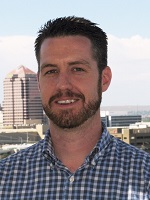
Patrick Leach, BS, is a Supervisor of Molecular Diagnostics at TriCore Reference Laboratories. He has a BS in Biochemistry from the University of New Mexico and has obtained his Molecular Biology certification from ASCP.He is currently pursuing an MBA from New Mexico State University as well. Patrick grew up in Southern California, but has spent the last 16 years of life in the Land of Enchantment. He joined TriCore in 2012 and continues to actively and efficiently improve the health of his community through excellence in laboratory diagnostics, education and research.
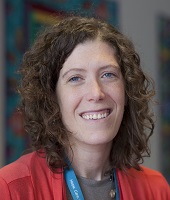
Sarah Leary, MD, MS, is the Medical Director of the Pediatric Brain Tumor Program at Seattle Children’s Hospital, Associate Professor of Pediatrics at the University of Washington School of Medicine, and affiliate of the Fred Hutchinson Cancer Research Center. Her professional goal is to improve the outcome for children with brain tumors by developing novel diagnostics, therapeutics and clinical trials. She is the principal investigator of the Seattle Children’s Tumor Bank, and founding member of the Children’s Brain Tumor Tissue Consortium (CBTTC), Pacific Pediatric Neuro-Oncology Consortium (PNOC), and Collaborative Network for Neuro-Oncology Clinical Trials Consortium (CONNECT). She is the clinical vice chair of the Central Nervous System Committee of the Children’s Oncology Group (COG) and serves on the Brain Malignancies Steering Committee of the National Cancer Institute (NCI).

Amy Leber, PhD, received her PhD from the Ohio State University and did a post-doctoral Fellowship in Clinical and Public Health Microbiology at UCLA Medical Center. She is a diplomate of the American Board of Microbiology and active in the American Society for Microbiology, ASCP, and AMP. She is currently the Senior Director of Clinical Laboratories and Director of Microbiology at Nationwide Children's Hospital in Columbus Ohio and an Associate Professor of Pathology and Pediatrics at The Ohio State University. She is the editor-in-Chief of the Clinical Microbiology Procedures Handbook. Her research interests include new molecular diagnostics and diagnosis of infectious diseases in pediatric populations.

Nathan Ledeboer, PhD, received his Ph.D. Degree in Microbiology from the University of Iowa in 2005. Following two years of fellowship training in clinical and public health microbiology at Washington University School of Medicine in Saint Louis, MO, he joined the faculty of the Department of Pathology at the Medical College of Wisconsin in Milwaukee, WI. He is currently a Professor and Vice Chair of Pathology and Medical Director of Microbiology, Molecular Diagnostics, reference services, and laboratory client services at Froedtert Hospital and Wisconsin Diagnostic Laboratories in Milwaukee, WI.
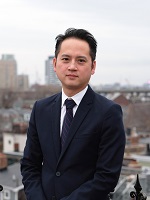
Long Le, MD, PhD, is a practicing molecular pathologist who is currently the Director of Computational Pathology at Massachusetts General Hospital and Director of Technology Development at the MGH Center for Integrated Diagnostics. His clinical and research interests include development of novel target enrichment, bioinformatics analysis, and medical informatics solutions for next-generation sequencing and their application for clinical molecular diagnostics. He has a strong interest in applying big data descriptive and predictive analytics in healthcare with the goal of efficiently delivering laboratory results and clinical decision support.

Anthony Letai, MD, PhD, received his MD and PhD at the University of Chicago. His PhD on point mutations in blistering diseases was done under the supervision of Elaine Fuchs. Dr. Letai then completed clinical training in Internal Medicine at Brigham and Women's Hospital, Boston, followed by a fellowship in Hematology and Oncology at Dana-Farber Cancer Institute. He was introduced to apoptosis and BCL-2 family proteins as a post-doctoral researcher in the laboratory of the late Stanley Korsmeyer. In 2004, Dr. Letai became independent investigator at Harvard Medical School and Dana-Farber Cancer Institute where he is now a Professor of Medicine. Since that time, his laboratory has studied how apoptosis can be evaded, particularly in cancer cells, and how this evasion may be detected and targeted. Key to these studies is a novel assay - BH3 profiling. He has led efforts to translate BCL-2, BCL-XL, and MCL-1 inhibitors into the clinic. These include venetoclax, a BCL-2 inhibitor made by AbbVie approved by the FDA for CLL and AML and now being tested across nearly all blood cancers. The laboratory is testing whether BH3 profiling can be used as a broad predictive biomarker to assign clinical cancer therapy.
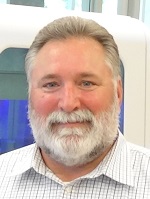
Michael Lewinski, PhD, is currently the Sr. Director of Medical Affairs, Microbiology and Smarticles technology at Roche Molecular Systems, Inc. in Pleasanton, California. He completed his Doctor of Philosophy degree in Microbiology and Immunology and a clinical postdoctoral Fellowship in Medical and Public Health Laboratory Microbiology at UCLA. He is a Diplomate of the American Board of Medical Microbiology, a licensed Laboratory Director and a certified Molecular Biologist. Prior to joining Roche, he was the Chief of Microbiology and Associate Clinical Professor of Pathology and Laboratory Medicine, David Geffen School of Medicine at UCLA. Prior to UCLA he was the Senior Scientific Director of Infectious Diseases at Quest Diagnostics Nichols Institute and Focus Diagnostics, Inc. He is a past President of the Southern California Branch of the American Society for Microbiology, has served on the Council of the Pan American Society of Clinical Virology and as Chair of the Infectious Disease Subdivision of the Association for Molecular Pathology. He currently serves on the Membership/Nominations Committee of the Pan American Society for Clinical Virology, the Editorial Board of the Journal of Clinical Virology and is the Chair of an Association of Molecular Pathology Clinical Practice Committee on Infectious Disease Multiplex Testing. His research interests have focused on the development and the automation of molecular tests for the detection, quantification, and characterization of microorganisms for the diagnosis of disease and for monitoring disease progression and response to therapy. He holds several patents and has published in various disciplines within infectious diseases and laboratory medicine.
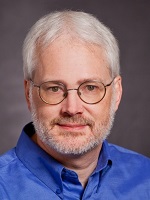
Stephen Lincoln is the Head of Scientific Affairs at Invitae. His recent publications with academic collaborators address the clinical validity, analytic validity, and clinical utility of genetic testing. He is a member of multiple guideline workgroups for the Association for Molecular Pathology and active with the international ClinGen consortium. Previously he had senior bioinformatics positions at Complete Genomics, Affymetrix, and Incyte Pharmaceuticals. His academic training involved 11 years at MIT and the Whitehead Institute with Eric Lander during the Human Genome Project.
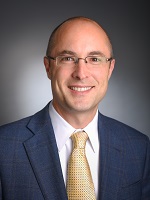
Coleman Lindsley, MD, PhD, is an Assistant Professor of Medicine at Harvard Medical School and Dana-Farber Cancer Institute, where he is Director of Molecular Diagnostics in Hematologic Malignancies. He received his M.D. and Ph.D. in Immunology from Washington University School of Medicine, then completed a residency in internal medicine at Brigham and Women’s Hospital and a fellowship in oncology at the Dana-Farber Cancer Institute. He is a member of the MDS Genetics Subcommittee for the NIH National MDS Study, the International Working Group for Prognosis in MDS (IWG-PM) molecular committee, and the Laboratory Assays Working Group for the Myeloid Malignancies Precision Medicine Initiative at National Cancer Institute. The primary focus of his laboratory is the biology and treatment of myeloid malignancies. His genetic studies have led to new genomic models of leukemia classification and MDS outcome after stem cell transplantation. His laboratory uses mouse and cell line models to dissect the mechanistic basis of genetic cooperation during myeloid disease progression, with a specific focus on mechanisms of leukemia initiation in patients with predisposition syndromes.
Wei Li, PhD, is a Duncan Endowed Professor of Bioinformatics in the Dan L. Duncan Cancer Center at Baylor College of Medicine. He received his PhD in Bioinformatics from the Chinese Academy of Sciences (2003) and was an Associate Director of Bioinformatics at Beijing Genomics Institute (BGI; 2002-2004). After his postdoctoral training in the Department of Biostatistics and Computational Biology at Harvard (2004-2007), he was recruited to Baylor as an Assistant Professor in 2007. After less than 9 years, Dr. Li was promoted to tenured Full Professor in 2016 (Duncan Endowed Chair in 2018). His research is focused on the design and application of bioinformatics algorithms to elucidate global epigenetic mechanisms in normal development and diseases, such as cancer. He has a solid track record in developing widely used open-source bioinformatics software, such as MACS (~6,000 citations) for ChIP-seq. Since establishing his own bioinformatics lab, he has (as of August 2019) (1) Published ~160 peer-reviewed papers through solid methodology development and extensive collaborative research, including 20 senior-author papers in Nature and Cell series. (2) Been well-funded with total active external funding >$1.0 million per year, including 4 PI grants from NIH. (3) Mentored the first 7 postdoc trainees to start their tenure-track faculty positions in the US. Dr. Li received many prestigious awards, including the New Investigator Award from Department of Defense (2010), and the Michael E. DeBakey Excellence in Research Award (2016).
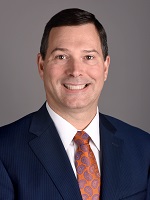
John Longshore, PhD, is the Director of Molecular Pathology for Carolinas Pathology Group. His primary professional responsibility is leading the Molecular Pathology Laboratory for Atrium Health, which is a full-service laboratory providing testing services in genetics, microbiology, virology, hematologic/solid tumor oncology, molecular cytogenetics, and clinical trial operations for a 48 hospital integrated health network. Dr. Longshore completed his undergraduate work at Georgia Tech, doctoral research at the University of Alabama at Birmingham, and a fellowship in Clinical Molecular Genetics at the Greenwood Genetic Center. John is a diplomate of the American Board of Medical Genetics and is an active member of the ACMG, ASHG, ESHG, AMP, IASLC, and ASCO. Over the past decade, Dr. Longshore’s laboratory has served as central pathology for multiple pivotal clinical trials that led to the FDA approval of oncology companion diagnostic assays. His focal area of research interest is companion diagnostics and the use of molecular markers in personalized medicine.
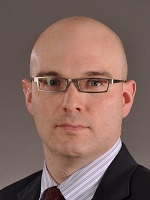
Etienne Mahe, MD, MSc, is a pathologist based in Calgary, Alberta, Canada. Dr. Mahe is ABP certified in anatomical pathology, with specialist certificates from the Royal College of Physicians & Surgeons of Canada in both Anatomical and Hematologicaly pathology. Dr. Mahe completed his medical degree and residency at McMaster University, as well as a research based master's degree in pathology at the University of Toronto. Dr. Mahe is a local leader in molecular hematology, with a significant interest in next-generation sequencing. Dr. Mahe's primary research interests relate to T- and B-cell clonality technologies and assay development. Dr. Mahe is actively involved in medical education, including the coordination of undergraduate teaching. Dr. Mahe is the secretary-treasurer of the Alberta Section of Laboratory Medicine and is a member of the College of American Pathologists' Hematology and Clinical Microscopy Committee.
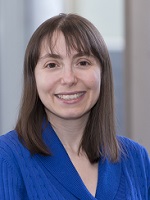
Diana Mandelker, MD, PhD, is an assistant attending pathologist on the molecular diagnostics service at Memorial Sloan Kettering Cancer Center (MSKCC) where she specializes in germline genetic analysis. She is also the associate director of the molecular genetic pathology training program at MSKCC. Dr. Mandelker received her BS and MS degrees from Yale University in Molecular Biophysics and Biochemistry. She then completed her MD and PhD degrees at the Johns Hopkins School of Medicine, followed by a clinical pathology residency at Brigham and Women’s Hospital and pathology informatics and molecular genetic pathology fellowships at Harvard Medical School.
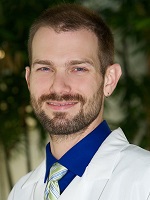
David Manthei, MD, PhD, is currently a Chemical Pathology fellow at the University of Michigan Department of Pathology. He completed his BS and MS degrees in Biomedical Engineering from the University of Wisconsin-Madison. He subsequently pursued his MD and PhD degrees as part of the Medical Scientist Training Program at the University of Wisconsin School of Medicine and Public Health. He completed Anatomic and Clinical Pathology training followed by Molecular Genetic Pathology Fellowship training at the University of Michigan.
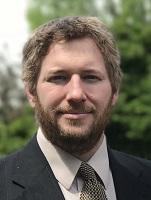
Ryan Mills, PhD, is an Associate Professor of Computational Medicine and Bioinformatics at the University of Michigan Medical School. He is also an Associate Professor of Human Genetics. Dr. Mills obtained an A.B. in Biology from Wabash College and then continued his studies at Georgia Tech where he received his doctorate. His postdoctoral work at Emory University produced the first published genome-wide map of insertion/deletion (INDEL) variation in human populations. He then continued his focus on genomic variation as a research associate at Brigham and Women's Hospital where he participated in both independent and collaborative research projects to analyze and discover structural variation from microarray and whole genome sequence data and helped in the development and implementation of array-CGH for clinical application through the Center for Advanced Molecular Diagnostics. His current research is focused on developing methods to identify previously overlooked variation including complex genomic rearrangements consisting of multiple breakpoints as well as occult mobile element insertions. He is also studying the impact of somatic structural genomic variation in neuropsychiatric diseases as part of the Brain Somatic Mosaicism Network where he is currently investigating low frequency mosaic variation in human brain tissue with state-of-the-art technologies.
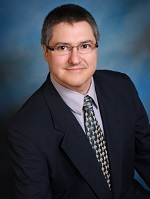
Federico Monzon, MD, is a molecular pathologist with extensive experience translating novel genomic technologies into clinical molecular tests, including leading studies on prostate and renal cancer genomics and the validation of one of the first FDA cleared gene expression clinical assays for the diagnosis of tumors of unknown origin while at the University of Pittsburgh and Houston Methodist Hospital. Currently, he is Chief Medical Officer at Castle Biosciences, a laboratory focused on providing genomic prognostic tools to patients with melanoma and other cancers. Prior to joining Castle, he served as Medical Director of Oncology and Medical Director for Latin America at Invitae Corporation, a provider of genetic diagnostics for hereditary disorders. Previously, Dr. Monzon served as Director of Pathology at the Cancer Genetics Laboratory from Baylor College of Medicine, where he maintains an academic affiliation as Clinical Associate Professor. He earned his M.D. from the Universidad Nacional Autónoma de México, and is board-certified by the American Board of Pathology in anatomic, clinical and molecular genetic pathology. Dr. Monzon was the 2017 President of the Association for Molecular Pathology (AMP) and continues to be engaged in AMP and other professional societies to shape the future of clinical genomic medicine.

Sejal Morjaria, MD, received her MD from the University of Miami, Miller School of Medicine and completed a residency in Internal Medicine at the Virginia Commonwealth University in Richmond, Virginia. She also completed an Infectious Disease fellowship at Memorial Sloan Kettering Cancer Center (MSKCC) where she currently is an Assistant Attending. There she specializes in Infectious Diseases, both clinically and through her research in Dr. Eric Pamer’s laboratory. She was involved in high-resolution daily stool sampling from hematopoietic stem cell transplantation patients, investigating the antibiotic-induced rapid shifts in fecal microbial density and composition. Dr. Morjaria is also involved in Quality Improvement projects such as improving length of stay for patients, a mobility initiative aimed at maintaining walking independence for older patients, etc. She is also spear heading the Penicillin Skin Testing initiative, aimed to test patients with a history of a Penicillin Allergy in order to confirm their allergy. She also started the Pulmonary-ID Case Conference as a forum for multidisciplinary discussions regarding diagnostic and treatment aspects of patient care
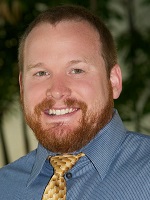
Jonathan Mowers, MD, PhD, is a molecular genetic pathology fellow at the University of Michigan who also has subspecialty training in gastrointestinal pathology. He received a B.S. in biochemistry and psychology at the University of Iowa followed by a MD, PhD and pathology residency training at the University of Michigan. His interests include testing for defects in mismatch repair and infectious gastroenteritis. His presentation at this meeting regards clinical and histologic features of infectious colitides.
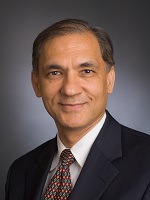
Nikhil Munshi, MD, is Professor of Medicine at the Harvard Medical School and the Director of Basic and Correlative Science, and Associate Director of the Jerome Lipper Multiple Myeloma Center at the Dana Farber Cancer Institute. Dr. Munshi's research focus spans both basic sciences to understand oncogenomic changes driving myeloma to translational approaches directed at improving prognosis as well as developing novel targeted therapeutics including novel antigen-directed immunotherapy and targeted small molecules for myeloma. He has served as a co-chair of the National Steering Committee on Myeloma (National Cancer Institute, NCI) and is the president-elect of the International Myeloma Society. He was awarded the prestigious award “Waldenstrom’s Award” for Distinguished Lifetime Achievement in Myeloma Research in 2013, the Dr. B.C. Roy National Award by the president of India in 2016 and the COMy “Multiple Myeloma Excellence Award for Translational Research" in 2019.

Dale Muzzey, PhD, received both his bachelor of arts and Ph.D. from Harvard University in biochemistry and biophysics, respectively. As a Damon Runyon Cancer Research Foundation postdoctoral fellow at UCSF, he performed NGS research involving genome assembly, haplotype phasing, and gene-expression analysis. He was a Senior Director of Scientific Affairs and Staff Scientist in Computational Biology at Counsyl prior to its acquisition by Myriad Genetics, where he served as Senior Director of Clinical Development and is now Vice President of Bioinformatics. In addition to leading assay development for Counsyl's expanded carrier screen and noninvasive prenatal screen, in the last two years Dr. Muzzey has authored more than a dozen peer-reviewed publications about these genetic tests.
Samia Naccache, PhD, is the Technical Microbiology Director of LabCorp's Seattle, serving the clinical microbiology needs of the Swedish Medical Center system as well as LabCorp's Microbiology reference lab activities. Her areas of expertise are in Microbiology, Molecular Microbiology and Virology. As a postdoc in the UCSF Clinical Microbiology, she spearheaded the development of the first diagnostic metagenomic NGS assay for meningitis/encephalitis. She has technical and clinical expertise in adult and pediatric microbiology and public health microbiology, with an extensive publication record on assay and bioinformatics pipeline development, syndromic and pan-pathogen assay utilization, and viral outbreak characterization.

Sunitha Nagrath, PhD, is an Associate Professor of Chemical Engineering at University of Michigan. Dr. Nagrath did her Bachelor’s degree in Chemical Engineering from Sri Venkateswara University College of Engineering, Tirupathi, India. She received her Ph.D. in 2004 from Rensselaer Polytechnic Institute, Troy, NY in Mechanical Engineering. She did her postdoctoral work (2004-2008) at Harvard Medical/Massachusetts General Hospital, Boston, MA. She later worked as an instructor/junior faculty at Harvard Medical School. Dr. Nagrath is the leading scientist who designed the MEMS based technology, “CTC-Chip” for the sensitive isolation of circulating tumor cells (CTCs) from the blood of cancer patients. She joined University of Michigan in 2010, where she established her laboratory focused on engineering innovative microfluidic devices and nanomaterials for implementing personalized precision medicine via liquid biopsy. Dr. Nagrath’s major focus of research is on understanding cell trafficking in cancer through isolation, characterization and study of circulating cells and exosomes in peripheral blood of cancer patients.

Frederick Nolte, PhD, is currently Professor and Vice Chair for Laboratory Medicine in the Department of Pathology and Laboratory Medicine, and Medical Director of Clinical Laboratories and Molecular Pathology at the Medical University of South Carolina. He is a Diplomate of the American Board of Medical Microbiology and a Fellow of the American Academy of Microbiology. Dr. Nolte completed his B.S. degree in biology at the University of Cincinnati and his Ph.D. in medical microbiology at the Ohio State University. Dr. Nolte completed a postdoctoral fellowship in public health and medical laboratory microbiology at the University of Rochester. is active in and held positions of responsibility in the American Society for Microbiology, Association for Molecular Pathology, Clinical and Laboratory Standards Institute, Infectious Diseases Society of America, American Society for Clinical Pathology, American Association for Clinical Chemistry, and College of American Pathologists. He has authored numerous book chapters, practice guidelines, and more than 100 peer-reviewed publications in the areas of clinical microbiology and molecular diagnostics. He has served on the scientific advisory boards and provided consulting services to many early stage and established diagnostic companies as well as commercial reference laboratories. In addition, he has experience with FDA clinical trial work and served as a member and consultant to the CDRH FDA Microbiology Devices Panel and has served on several NIH and CDC advisory panels.
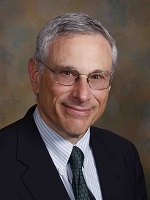
Robert L. Nussbaum, MD, is the Chief Medical Officer of Invitae, a genetic information and diagnostic company. He is board certified in internal medicine, clinical genetics and clinical molecular genetics, and is a Fellow of the American College of Physicians and the American College of Medical Genetics and Genomics. From 2006-2015, he was the Holly Smith Professor of Medicine at UCSF, Chief of the Division of Genomic Medicine and Medical Director of both the Cancer Risk Program and the UCSF Program in Cardiovascular Genetics. He trained in Medicine at Harvard Medical School, internal Medicine at Washington University/Barnes Hospital in St. Louis, and received Clinical Genetics training at Baylor College of Medicine.
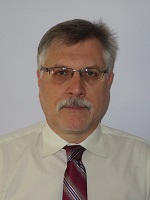
Zoltan Oltvai, MD, is an associate professor in the Departments of Pathology and Computational & Systems Biology at the University of Pittsburgh School of Medicine. He received his medical degree from Semmelweis Medical University and underwent residency training in Clinical Pathology at Washington University School of Medicine and MGP fellowship training at the University of Minnesota School of Medicine. He previously was assistant professor of pathology at Feinberg Medical School, Northwestern University. His research interest spans from basic biology of bacterial metabolism to development of methods for improved assessment of clinical molecular data.
Gregory Omerza

Sandra Park is a Senior Staff Attorney in the ACLU Women’s Rights Project. At the ACLU, Sandra engages in litigation, policy advocacy, and public education at the federal, state, and local levels to advance gender equality and the rights of women and girls. Sandra has advocated for survivors of gender-based violence throughout her legal career. Much of her current work focuses on discrimination faced by victims of domestic violence and sexual assault in housing, law enforcement response, employment, and schools. Sandra is also responsible for the ACLU’s work strengthening patients’ genetic privacy rights and addressing the intersection of patent regulation and civil liberties. She represented twenty medical organizations, geneticists, and patients in a groundbreaking lawsuit challenging patents granted on two human genes related to breast and ovarian cancer, resulting in a unanimous 2013 U.S. Supreme Court ruling invalidating gene patents (Association for Molecular Pathology v. Myriad Genetics).
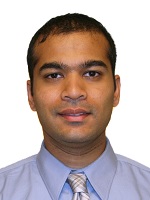
Vikram Pattanayak, MD, PhD, is an Assistant in Pathology at Massachusetts General Hospital and an Instructor in Pathology at Harvard Medical School. He leads a subgroup of Keith Joung’s laboratory focused on the development of genome editing tools, with a focus on detecting and minimzing off-target effects. During his M.D., Ph.D. thesis work with David Liu in the Harvard Chemistry department, he developed assays to define the specificities of designer endonucleases, including homing endonucleases, zinc finger nucleases (ZFNs), transcription activator-like effector nucleases (TALENs), and Cas9. As a member of the Joung lab, he engineered a variant of Cas9 (SpCas9-HF1) with minimal off-target effects. In addition to his research activities, Vikram has also completed a residency in clinical pathology at Massachusetts General Hospital and fellowship in molecular genetic pathology at Harvard Medical School. He currently serves as the director of the MGH Histocompatibility (HLA) laboratory.

Ben Pinsky, MD, PhD, is an Associate Professor of Pathology and Medicine, in the Division of Infectious Diseases and Geographic Medicine at the Stanford University School of Medicine. He also has a courtesy appointment in the Stanford Department of Pediatrics, Division of Infectious Diseases. He serves as the Medical Director of the Clinical Virology Laboratory and the Medical Director of Esoteric (Send-out) Testing for Stanford Health Care and Stanford Children’s Health, as well as the Co-Medical Director for Point of Care Testing for Stanford Health Care. Dr. Pinsky earned his M.D. and Ph.D. degrees in the Medical Scientist Training Program at the University of Washington School of Medicine in Seattle. He received residency training in Clinical Pathology and fellowship training in Molecular Genetic Pathology at the Stanford University School of Medicine. Dr. Pinsky’s research interests include the design of novel diagnostics and investigation of the clinical impact of virologic testing. Dr. Pinsky serves as the U.S. editor-in-chief for the Journal of Clinical Virology and is the co-editor of the 5th edition of the Clinical Virology Manual.
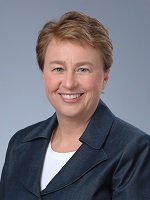
Victoria Pratt, PhD, Professor, Director of Pharmacogenetics and Molecular Genetics Laboratories, Indiana University School of Medicine Dr. Pratt is a Medical and Clinical Molecular Geneticist board-certified by the American College of Medical Genetics. Prior to joining Indiana University, she was Chief Director, Molecular Genetics, for Quest Diagnostics Nichols Institute. Dr. Pratt is the President of the Association for Molecular Pathology. Dr. Pratt is also the Past Chair of the Genetics, Clinical Practice and the Program committees and is currently a member of the Economic Affairs, Professional Relations committees for AMP. She is a former advisor of EurogenTest for genetic test validation. Dr. Pratt serves on the American Medical Association’s (AMA) Molecular Pathology Current Procedural Terminology (CPT) Advisory committee. In addition to her work, Dr. Pratt served on the Centers for Medicare and Medicaid Services Clinical Diagnostic Laboratory Tests Advisory Panel. Dr. Pratt continues to serve on the Centers for Disease Control and Prevention (CDC) GeT-RM program for reference materials for Molecular Genetics. She is currently serving on the National Academy of Medicine’s (formerly Institute of Medicine) Roundtable on Genomics and Precision Health. Dr. Pratt has authored over 75 peer-reviewed manuscripts and book chapters. She is also an Associate Editor for the Journal of Molecular Diagnostics. Dr. Pratt graduated with a Ph.D. in Medical and Molecular Genetics from Indiana University School of Medicine, Indianapolis, IN in 1994. Her fellowship training was in Ph.D. Medical and Clinical Molecular Genetics at Henry Ford Hospital, Detroit MI.

Tareq Qdaisat, MD received his medical degree from the University of Jordan for Science & Technology, completed his residency in anatomic and clinical pathology from Baylor College of Medicine - Houston, Texas and served as the Chief pathology resident from 2018-2019. Currently, he is the Molecular Genetics Pathology fellow at the University of Nebraska Medical Center - Omaha, Nebraska. He has an interest in the genomics of solid tumors, clinical informatics, molecular genetics education with a special interest in integrating pathology and molecular diagnostics into global health.
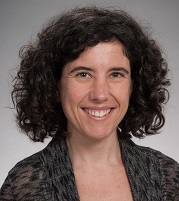
Rosana Risques, PhD, is Associate Professor in the Department of Pathology at the University of Washington. She received her undergraduate degree in Molecular and Cell Biology and her PhD in Cancer Genetics from the Autonomous University of Barcelona, Spain. Then she did postdoctorate training at the Sidney Kimmel Cancer Center in San Diego and at the Department of Pathology at the University of Washington. Dr. Risques’ main research interest is the study of the early genetic alterations that lead to cancer with the goal to enable a better understanding of tumor progression and the development of biomarkers for early cancer detection and prediction. Her research bridges cancer with aging and methods development with clinical applications. She optimized telomere length measurement by quantitative PCR, leading to a core service and multiple collaborative projects. With the advance of next-generation sequencing, she changed focus to somatic mutations and contributed to the development of Duplex Sequencing, an ultra-sensitive method for low frequency mutation detection. She implemented Duplex Sequencing for the detection of ovarian cancer in peritoneal fluid and uterine lavage and discovered the ubiquitous presence of low frequency TP53 mutations in normal tissue. The Risques lab is currently dedicated to develop biomarkers for early cancer detection using ultra-accurate sequencing and to characterize age-related somatic mutations and their association with cancer risk.
Arash Ronaghy, MD, PhD, is currently a Molecular Genetic Pathology Fellow at MD Anderson Cancer Center in Houston, Texas. Prior to starting his Molecular Genetic Fellowship, he completed a Hematopathology Fellowship at MD Anderson Cancer Center. Dr. Ronaghy completed his Pathology Residency training at Lenox Hill Hospital Hofstra, Northwell Health in 2017. His areas of clinical interest and research have been focused on hematologic malignancies. Dr. Ronaghy has authored research publications, written book chapters, and has had several presentations at various national meetings.
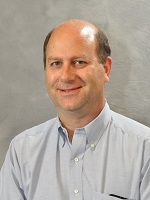
Daniel Sabath, MD, PhD, is the head of the Hematology Division in the Department of Laboratory Medicine at the University of Washington, where he has served on the faculty since 1993. His main clinical responsibilities include directing the hematology laboratories at the University of Washington Medical Center and Harborview Medical Center, which includes basic hematology testing, coagulation and red cell disorders. Dr Sabath is also responsible for signing out hematopathology cases, both tissue- and bone marrow-based. Finally, Dr Sabath has been involved in molecular diagnostic testing in hematopathology since the Southern blot days. He currently has significant signout responsibility for hematopathology molecular diagnostic cases, including B and T cell clonality, quantitative RT-PCR for BCR-ABL1, single gene mutation assays for FLT3, CEPBA, JAK2, CALR and NPM1 as well as a laboratory- developed amplicon-based next-generation sequencing assay for mutations associated with myeloid stem cell neoplasms. In addition to his clinical work, Dr Sabath has been collaborating with a Seattle biotech startup company to develop a new assay for circulating tumor cells. This assay was clinically validated and became available for patient testing in July 2019.
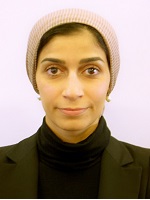
Azhar Saeed, MD, MSc, is an anatomic and clinical pathology resident at the University of Kansas Medical Center. She earned her M.D. degree from Arabian Gulf University in Bahrain and her Master of Science degree in Cancer Chemical Biology from the University of Michigan-Ann Arbor. Upon completing residency she is planning to pursue subspecialty training in molecular genetic pathology and gastrointestinal pathology.
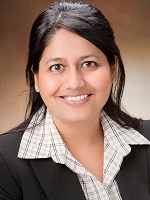
Avni Santani, PhD, FACMG, is an Associate Professor of Clinical Pathology and Laboratory Medicine at the University of Pennsylvania and Director of Laboratories and Strategic Partnerships at the Center for Applied Genomics (CAG) at the Children’s Hospital of Philadelphia. Dr. Santani received her Master’s in Medical Molecular Genetics at the University of Aberdeen and her PhD in Genetics at Texas A&M University. She holds specialty board certifications in Clinical Molecular Genetics and Clinical Cytogenetics. Under Dr. Santani’s leadership, the multi-disciplinary program at CAG is focused on creating a comprehensive genomics program for patients with genetic disorders by developing innovative technologies for diagnosis, forming strategic alliances with pharmaceutical companies and, advancing gene discovery. Dr. Santani is an experienced leader in molecular diagnostics, genomics, strategy and laboratory administration. Her research focuses on leveraging advanced sequencing technologies and informatics for the diagnosis of rare genetic disorders. Her work in the area of clinical genomics led to her receiving the Innovator of the Year Award (2015) by the Philadelphia Business Journal and Outstanding Contributions to the Prevention of Birth Defects Award by the National China Gene Bank. She also is actively involved with several national working groups including the College of American Pathologists Genome Medicine Resource Committee, the Association for Molecular Pathology, and the Clinical Laboratory Standards Institute, among others.
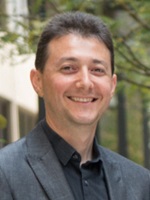
Andrea Sboner, PhD, is the Director of Informatics and Computational Biology at the Englander Institute of Precision Medicine at Weill Cornell Medicine in New York City. His research interests are in translational medicine with a focus on precision medicine technology for improving patient care. From the clinical viewpoint, he supervised the design and implementation of the informatics infrastructure in the Clinical Genomics Laboratory of the Department of Pathology at Weill Cornell Medicine as well as the computational pipeline for the lab NGS testing. The Clinical Genomics Laboratory was the first lab to offer a CLIA-approved whole exome sequencing test to patients with advanced cancer. From the research perspective, he focuses the application of new precision medicine technologies for discovery and education, including processing and analysis of NGS assays such as RNA-seq, WGS, as well as applications of virtual and augmented reality, machine learning, and mobile applications to collect patient-reported information.

Robert Schlaberg, MD, MPH, is an Assistant Professor of Pathology at the University of Utah, a medical director at ARUP Laboratories, and Co-founder and CMO at IDbyDNA, Inc. He completed his Clinical Pathology residency and Master of Public Health training at Columbia University, and a Medical Microbiology fellowship at ARUP Laboratories. His research and practice are focused on next-generation sequencing-based infectious disease diagnostics. He has co-developed technology for ultrafast, user-friendly, and diagnostic-grade metagenomics data analysis to accelerate development of precision diagnostics for infectious disease. He is board-certified in Clinical Pathology and Medical Microbiology by the American Board of Pathology.
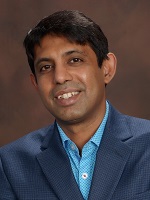
Siddhartha Sen, MD, PhD, is a 4th year resident in Pathology at Duke University. I obtained my medical degree in India at BJ Medical College, Pune, followed by a PhD in Biochemistry and Molecular Biology at Louisiana State University. I then worked as a post-doctoral fellow at University of Rochester, and Weill Cornell Medical College, NY. My post-doctoral research mainly focused on leukemic stem cell biology and chemo-genomic approaches to specifically target leukemic stem cells. I also had the opportunity to collaborate with leading multinational biotech giants like Amgen and Takeda Oncology on several subcontracts. My long-term goals are to develop molecular diagnostic assays that incorporate genome wide prognostic and diagnostic molecular profiling into the clinical laboratories for routine patient care. As pathologists, we can play an important role in the adaptation of these genome-wide tests, and thus lead the transition to more complex and precise prediction of disease risk and therapy.
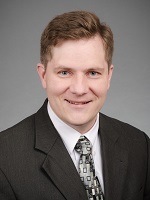
Brian Shirts, MD, PhD, is a molecular genetic pathologist in the Department of Laboratory Medicine at the University of Washington whose research focuses on understanding family-specific genetic variants that causes of adult-onset disease. Dr. Shirts’ research covers statistical, informatics, and philosophical issues surrounding interpretation of family-specific variants and communication of this risk among family members as well as related issues of reporting complex genetic information in the electronic health record. He has been a member of AMP for many years and has served as the Informatics Subdivision representative on the AMP Nominating Committee.

Khosrow R. Shotorbani, MBA, MT
Patricia Simner, MSc, PhD, is an Associate Professor of Pathology at the Johns Hopkins University School of Medicine and the Director of the Medical Bacteriology and Infectious Disease Seqeuncing Laboratories at the Johns Hopkins Medical Institutions. Her research has focused on understanding the epidemiology and molecular mechanisms of resistance of Gram-negative bacteria, in particular those harboring β-lactamase enzymes. She is also interested in novel diagnostic tools for infectious diseases and is actively involved in developing metagenomic next-generation sequencing as a diagnostic tool. Dr. Simner is a voting member on the Subcommittee on Antimicrobial Susceptibility Testing for the Clinical and Laboratory Standards Institute, she is the Early Career At-Large representative for the American Society for Microbiology Council on Microbial Sciences, a member of the Microbiology Committee for the College of American Pathologists and an Editorial Board Member for the Journal of Clinical Microbiology.
Anthony Sireci, MD, is a Senior Medical Director at Loxo Oncology, a wholly owned subsidiary of Eli Lilly, where he leads medical affairs. Prior to joining Loxo, Nino was as Assistant Professor of Pathology and Cell Biology at Columbia University Medical Center, where he was a medical director in the Personalized Genomic Medicine Laboratory. Dr Sireci is an active member of the Association for Molecular Pathology (AMP) where he serves as a vice chair of the pricing and new codes subcommittee in the Economic Affairs Committee. He is a technical advisor on the Pathology Coding Caucus in the College of American Pathologists and a member of the Molecular Pathology Advisory Group (MPAG) in the American Medical Association (AMA). Nino received his BA in Chemistry from New York University and an MD from the Johns Hopkins University School of Medicine. He completed his residency training in Clinical Pathology at the New York Presbyterian Hospital-Columbia University Medical Center where he also served as chief resident. During this residency he also received an MSc in biostatistics from the Mailman School of Public Health at Columbia.

Roberta Sitnik, MSc, PhD, Biologist, Received her MSc and PhD in Sciences and Genetics from the University of São Paulo. Currently works as a Molecular Pathology Specialist at the Clinical Laboratory at Hospital Israelita Albert Einstein, in São Paulo, SP, Brazil. Has more than 20 years of experience in molecular pathology, focusing on Human and Medical Genetics, Infectious diseases, project management, tests validation and quality control.
Jan Smout, MSc, is a Product Developer at MRC Holland. He specializes in the development of MLPA products applied in oncogenetics, and works on making a methylation-specific version of the assay compatible with Next-Generation Sequencing (NGS) techniques. He received his Master's degree in Biomedical Sciences at Utrecht University, The Netherlands, after working on cellular stress responses and the genomics of transcriptional regulation.

Matija Snuderl, MD, is Associate Professor of Pathology. He obtained his MD degree from Charles University, Prague and completed his residency in Anatomic Pathology and Neuropathology at Massachusetts General Hospital. He then completed fellowship in Molecular Genetic Pathology at Harvard Medical School and post-doctoral fellowship at the Edwin L .Steele Laboratory for Tumor Biology at Massachusetts General Hospital. Dr. Snuderl joined the faculty at NYU School of Medicine in January 2013 and has been actively involved in designing new molecular tests and platforms particularly in molecular neuropathology and epigenetics. Dr. Snuderl has strong interest in tumor genetics, epigenetics and tumor microenvironment. The American Association of Neuropathologists awarded his work at its annual meetings, with the Lucien J. Rubinstein Award for the Best Paper on Neuro-oncology in 2009 and 2015 and Honorable Mention in the same category in 2008 and 2010.

Steven A. Soper, PhD, joined the faculty at Louisiana State University (LSU) in 1991 within the Department of Chemistry, where he filled the William H. Pryor Distinguished Chair of Chemistry. While at LSU, he founded the Center of BioModular Multi-Scale Systems for Precision Medicine, which has as its primary charge to develop enabling and transformative tools for making health-related measurements from rare disease markers, such as liquid biopsy markers, with full process automation. This Center has recently been awarded funding from the National Institutes of Health as part of their Biotechnology Resource Center Program (funded through the National Institute of Biomedical Imaging and Bioengineering). In 2011, Prof. Soper accepted a position within the Department of Biomedical Engineering and Department of Chemistry at the University of North Carolina, Chapel Hill. Prof. Soper is currently a Foundation Distinguished Professor in Chemistry and Mechanical Engineering at the University of Kansas, Lawrence. Prof. Soper also holds an appointment at Ulsan National Institute of Science and Technology in Ulsan, South Korea, where he is a World Class University Professor. As a result of his efforts, Prof. Soper has has published over 245 peer-reviewed manuscripts (h index = 66; 15,289 citations); 31 book chapters and 71 peer-reviewed conference proceeding papers, and is the author of 12 patents. He is also the founder of a startup company, BioFluidica, which is marketing devices for the isolation and enumeration of circulating tumor cells. His list of awards includes Chemical Instrumentation by the American Chemical Society, the Benedetti-Pichler Award for Microchemistry, Fellow of the AAAS, Fellow of Applied Spectroscopy, Fellow of the Royal Society of Chemistry, R&D 100 Award, Distinguished Masters Award at LSU and Outstanding Scientist/Engineer in the state of Louisiana in 2001. Finally, Prof. Soper has granted 46 PhDs and 6 MS degrees to students under his mentorship.
Jeff SoRelle, MD, is the Chief resident of UT Southwestern's pathology residency program where he completed his Molecular Genetic Pathology fellowship in 2019. He is from Waco and earned his B.S. degree in Chemistry from Centre College in Danville, Kentucky, on the school's highest merit-based scholarship. Jeff returned to Texas for medical school at UT Southwestern, where he served as co-president of the Dallas chapter of the American Medical Student Association, co-president of the Gender Equality Medical Society, and vice-president of the pathology student interest group. First as a summer student and subsequently for a year as a Howard Hughes Research Fellow, Jeff worked in the lab of 2011 Nobel Prize winner, Dr. Bruce Beutler, screening mutagenized mice for genetic modulators of the allergic response. An oral presentation of this work won first place overall at the National Student Research Forum in 2014, and Jeff intends to continue his investigations in this exciting area. He finished his medical school career at UT Southwestern with the Vernie Stembridge Award for Academic Excellence in Pathology. Jeff also participates in triathlons and half-marathons, and enjoys cooking, his doberman pup, and travelling around the Mediterranean.

Amanda Sozer, PhD, founder, and president of SNA International, has a Ph.D. from the University of Tennessee - Oak Ridge Graduate School of Biomedical Sciences and spent her early career managing forensic DNA laboratory operations at Cellmark Diagnostics and Fairfax Identity Laboratories. She then served as a Technical Contractor to the National Institute of Justice, supporting the DNA backlog reduction programs and facilitating the National Institute of Justice Kinship and Data Analysis Panel for the World Trade Center Victim Identification Pannel. Dr. Sozer managed the Hurricane Katrina victim DNA identification project, facilitating the Hurricane Victim DNA Identification Expert Group for Louisiana and Mississippi. She is an internationally recognized expert in human identification and has served on numerous committees and panels in an advisory capacity. Dr. Sozer facilitated the writing of the AABB Guidelines for Mass Fatality DNA Identification Operations and was an advisory member of the Federal Bureau of Investigation’s Scientific Working Group on Disaster Victim Identification (SWGDVI) Data Management Committee. Dr. Sozer has also written strategic plans and mass fatality response plans for a number of organizations in the U.S. and has led a Subject Matter expert group developing guidelines for scientists working on human rights projects for the American Academy for the Advancement of Science. She currently sits on the New York State Forensic Commission DNA subcommittee. Dr. Sozer is an expert on Rapid DNA, participating in field exercises to illustrate the versatility of Rapid DNA in the Department of Homeland Security operations and disaster victim identification operations. She has contributed to Rapid DNA research and development on local, national and international scales.
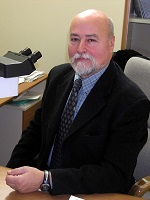
Giorgio Stanta, MD, PhD, of the University of Trieste is an expert in molecular pathology for oncology. He started to work in molecular pathology at the Department of Pathology of the Yale University (CT) in the second part of the 80s. He is involved in many European organizations: He is the coordinator of the European group Archive Tissues: Improving Molecular Medicine Research and Clinical Practice IMPACTS. He is the chairman of the Biobanking and Molecular Pathobiology Working Group of the OECI (Organisation of European Cancer Institutes). He is involved in the chairmanship of the Molecular Pathology Working Group of the ESP (European Society of Pathology). He is a member of the managing board of BBMRI.IT (Italian Biobanking Infrastructure). He is a member of the Committee of CEN (European Committee for Standardization) for Molecular in-vitro diagnostic examinations. He is the liaison representative for the ESP to the European Committee for Standardization (CEN/TC 140) and member of the CEN Committee for Molecular in-vitro diagnostics. He is a member of the European Commission Initiative on Breast Cancer (ECIBC) - Quality Assurance Scheme Development Group (QASDG), in which he is the Chair of the Clinical Research Subgroup. He is the chair of the European Molecular Pathology Master (EMPM) Steering Committee for the development of the Master. He is consultant of the Comprehensive Cancer Centre CRO in Aviano, Italy. -He was from 2013-2016 member of the Genetic Pathology Faculty of the European Society for Medical Oncology (ESMO). He was in the audit committee for INSERM in France for the biobanking (2014-2016). He is involved in several active European projects such as HERCULES on high grade serous ovary carcinoma, SPIDIA4P project on pre-analytical conditions, and InstandNGS4P on the clinical validation of NGS products commercially available.

Timothy Stenzel, MD, PhD, directs the FDA’s Office of In Vitro Diagnostics and Radiological Health. He joined the FDA in July 2018 after a long executive career in both academics as well as industry including oversight of test development for both CLIA labs and IVD manufacturers. He completed an M.D./Ph.D., pathology residency, and Clinical Molecular Genetics fellowship at Duke University prior to joining the Duke faculty and subsequently then moved to industry.
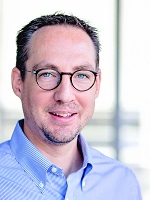
Albrecht Stenzinger, MD is Professor of Molecular Tumor Pathology and the Head of the IPH Center for Molecular Pathology (CMP) as well as Section Head for Molecular Diagnostics and Biomarker Development at the Institute of Pathology (IPH), University Hospital Heidelberg, Germany. He is holding an MD degree from the University of Giessen (Germany), completed his residency and fellowship training in pathology at the Charité University Hospital in Berlin and the University Hospital Heidelberg (Germany) and is a board?certified surgical pathologist and senior attending. Albrecht received postdoctoral training at the University of Heidelberg, Germany and Massachusetts General Hospital/Harvard Medical School, USA. He has a broad expertise in molecular pathology and works in thefield of translational research and genetics of solid tumors with a focus on lung cancer.
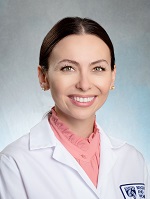
Panieh Terraf, PhD, is a Clinical Laboratory Genetics and Genomics Fellow in the Department of Pathology at the Brigham and Women's Hospital completing the Genetics Training Program at Harvard Medical School. Her interests include integrating cytogenetic and molecular data to analyze and interpret complex genomic results, and utilizing this holistic approach for the development of new avenues of diagnostics.
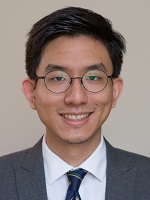
Talent Theparee is currently a molecular genetic pathology fellow at Stanford Healthcare. He completed residency in Anatomic and Clinical Pathology from the University of Chicago (NorthShore) at Evanston Hospital and served as chief resident from 2017-2019. Talent currently serves as a junior member of the AMP Membership Affairs Committee. He is interested in applying molecular techniques to personalized medicine to his home country of Thailand, where he received his M.D. degree from Srinakharinwirot University.
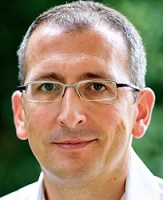
Christian Thiede, MD, is a scientist with 25 years of research experience in the field of molecular analysis of human tumors, especially in the field of leukemia and lymphoma. After finishing his medical education at the FU Berlin, he had three years of Post-Doctoral training in the Department for Hematology and Oncology at Humboldt University/Charité, Berlin where he worked on the molecular characterization of gastric marginal zone B-cell lymphoma of MALT. He then went to Dresden to build up a research group and a diagnostic laboratory at the newly established Medical Faculty at the University of Technics in Dresden. Since 2006, he holds a position as Professor for Molecular Hematology at the Medical Faculty Carl Gustav Carus, University of Technics Dresden. He is head of the working group for molecular Diagnostics of the German Society for Hematology and Oncology and leads the WP12 (MRD) of the European Leukemia Network (ELN). His major research focus is the understanding of the molecular mechanisms involved in leukemogenesis, alterations involved in treatment resistance, as well as the use of this information to perform targeted treatment and molecular monitoring of treatment response.
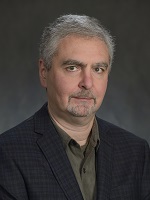
Andrei Thomas-Tikhonenko, PhD, my laboratory has a long-standing interest in pathobiology of solid and hematopoietic malignancies, in particular lymphomas and leukemias and other cancers driven by MYC overexpression. I trained in the MYC field in the early '90s as post-doctoral Research Associate and then Leukemia Society Special Fellow at the renowned Fred Hutchinson Cancer Research Center in Seattle. In 1997, I was recruited to the University of Pennsylvania, where I rose through the ranks to become tenured Professor of Pathology & Laboratory Medicine. For over 18 years, I have been continuously funded by NCI, beginning with the NIH FIRST Award (R29) and ending with 2 recently completed R21s and currently active R01 and U01 grants. In addition, I have received grants from numerous private foundations including American Cancer Society, Swiss Cancer League, Leukemia & Lymphoma Society, Alex's Lemonade Stand Foundation, WW Smith Charitable Trust, The V Foundation, William Lawrence & Blanche Hughes Foundation, and St Baldrick's Foundation. This robust extramural support allowed me to maintain an active lab, currently composed of four postdoctoral fellows, one Hem-Onc fellow, two bioinformatics scientists, three thesis-level graduate students, and one technician. We publish our work in top-notch journals, including Nature Genetics, Nature Immunology, Journal of Clinical Investigation, Journal of the National Cancer Institute, Blood, Cancer Research, etc. Of the Top 10 most frequently cited 2005-2014 MYC papers, my laboratory co-authored 3, which were cited >2,000 times. Ten years ago, I moved my lab across campus to The Children's Hospital of Philadelphia, where it became an integral part of the Center for Childhood Cancer Research. This integration allowed me to foster new collaborations with key physician-scientists and pursue several translational projects.

Olena Vaske, PhD, FCCMG, is the Co-Founder of the Treehouse Childhood Cancer Initiative at the University of California Santa Cruz Genomics Institute, where she is Assistant Professor of Molecular, Cell and Developmental Biology. Dr. Vaske’s research focuses on developing novel RNA-Seq analysis approaches for pediatric cancer patients. Dr. Vaske holds a PhD in Bioinformatics from the University of British Columbia and a BSc (Hons) in Molecular Genetics and Biology from the University of Toronto. She is a Fellow of the Canadian College of Medical Geneticists.
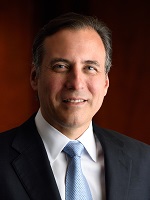
James Versalovic, MD, PhD, currently serves as Pathologist-In-Chief at Texas Children’s Hospital. He also serves as Vice Chair of Pathology & Immunology at Baylor College of Medicine (BCM), and Director of the Texas Children’s Microbiome Center. He holds the Milton J. Finegold endowed chair as Professor of Pathology & Immunology, and is Professor of Pediatrics, Molecular and Human Genetics, and Molecular Virology & Microbiology at BCM. He is Co-Director of the NIDDK-funded Texas Medical Center Digestive Diseases Center. He also served as Co-Director of the NIH-funded Medical Scientist (MD-PhD) training program for 12 years. He was Editor-in-Chief of the Manual of Clinical Microbiology and Editor of Therapeutic Microbiology: Probiotics and Related Strategies. Dr. Versalovic is board-certified in Clinical Pathology and Molecular Genetic Pathology. His clinical interests include human genomics, metagenomics, medical microbiology and the human microbiology of chronic diseases in children. As a Principal Investigator, his primary research interests include the human microbiome, gastrointestinal microbiology, and digestive diseases. His research program has been supported by the U.S. National Institutes of Health, Department of Defense, and Crohn’s & Colitis Foundation. Dr. Versalovic has authored 172 primary manuscripts, 37 book chapters, and 2 patents. He received the Lansky Award as a national leader in pathology under the age of 45 from the College of American Pathologists Foundation. He also received the BioGaia Ivan Casas Probiotics Research Award and the BCM Graduate School of Biomedical Sciences Distinguished Alumnus Award. In 2019, Dr. Versalovic was elected as a Fellow of the American Academy of Microbiology (AAM).
David Viswanatha, MD, is board-certified diplomate in Anatomic Pathology (ABP and RCPSC) and Hematopathology (ABP). He is a graduate of the University of Western Ontario in Canada (now Western University) and completed his fellowship in Hematopathology under the mentorship of Drs. Kathy Foucar and Cheryl Willman at the University of New Mexico. He has held previous academic staff positions and laboratory director responsibilities at the University of New Mexico and the British Columbia Cancer Agency. He is currently a consultant hematopathologist at Mayo Clinic in Rochester, MN, where he also co-directs the Molecular Hematopathology and Clinical Genome Sequencing Laboratories. Dr. Viswanatha has been a long-standing AMP member, having served in the capacity of CPC and Nominating Committee representative (Hematopathology Subdivision), and as a participant on the Professional Relations Committee. Dr. Viswanatha is avidly focused on the challenge of developing high quality, cost-effective and technologically current clinical molecular assays to serve patients and the practice of hematology. His areas of research, education and practice interest include both myeloid neoplasms and lymphoma, as well as minimal residual disease evaluation.

Karl Voelkerding, MD, received his Bachelor of Science from the Ohio State University in 1978 and his Medical Degree from the University of Cincinnati College of Medicine in 1983. He completed post-doctoral research and clinical training in molecular biology and clinical pathology. In 1990, he joined the faculty of the Department of Pathology and Laboratory Medicine at the University of Wisconsin in Madison, Wisconsin, where he developed and directed a molecular diagnostics laboratory while also practicing transfusion medicine. In 2002, he moved to Salt Lake City, Utah to join the ARUP Laboratories. Currently, he is a Professor of Pathology at the University of Utah and a Medical Director of Genomics and Bioinformatics at the ARUP Laboratories. Dr. Voelkerding is board certified in clinical and molecular genetic pathology. He has a longstanding involvement in the translation of new technologies into molecular diagnostics, and this interest has focused over the past few years on next generation sequencing. He is currently Chair of the College of American Pathologists’ Genomic Medicine Committee.
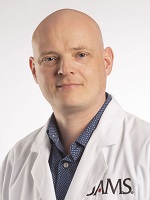
Brian Walker, BSc, PhD, graduated from the University of Edinburgh, UK, with a BSc (Hons) in Medical Microbiology in 1996 before completing a PhD at Imperial College London, UK, focussed on the co-evolution of antigen processing genes with MHC molecules. He was a Staff Scientist at The Institute of Cancer Research in London where his work has focussed on the genetics of multiple myeloma. He is currently a Professor at the Myeloma Center at the University of Arkansas for Medical Sciences, AR. Most of this work has revolved around utilising primary patient material with a range of techniques including gene expression and mapping arrays to next generation sequencing technologies to identify the genetic determinants that can be used to sub-classify myeloma. These determinants include common copy number abnormalities, somatic mutations and gene expression profiles which can accurately classify patients according to biological criteria, which in turn can determine the prognosis of the patient. With the introduction of next generation sequencing (NGS) it has been possible to utilise these data to determine the sub-clonal structure and evolution of tumour cells within a patient, which can be validated using single cell analysis, to illustrate the level of heterogeneity within a tumour and how treatment can affect this important substructure
Michael Walsh, MD, is a pediatrician, geneticist, and hematologist-oncologist. He treats children with cancer and takes care of families with a predisposition to cancer. As a member of the Niehaus Center for Inherited Cancer Genomics, the Department of Pediatrics and the Clinical Genetics team, Dr. Walsh prescribes treatments, offers risk-reductive options, generates surveillance plans, and contextualizes information for patients.

Carl Wittwer, MD, PhD, is a Professor of Pathology at the University of Utah. Carl has published more than 200 articles focusing on technique and instrument development in molecular diagnostics. In the early 1990s he developed rapid-cycle PCR for DNA amplification in 10-15 min and was the primary inventor of the LightCycler® system, with over 10,000 units placed worldwide by Roche. Carl holds 40 US patents and their foreign equivalents. He introduced SYBR Green I, adjacent hybridization probes, melting analysis, and high-resolution melting (HRM) to real-time PCR, techniques that are widely used today. Current projects are extreme PCR (< 1 min) and high speed melting (HSM) in <5 s. In 1990, Carl co-founded BioFire Diagnostics, a company that has grown to over 1,600 people today. He served as Chairman of the Board from 2012 until its acquisition by BioMerieux in 2014.
Waihay Wong

Joshua Xu is currently the Branch Chief for Research-to-Review (R2R) at the Division of Bioinformatics and Biostatistics of FDA's National Center for Toxicological Research (NCTR). He has twenty years’ experience developing bioinformatics software and systems and conducting research in genomics and image analysis. He specializes in data mining, image analysis, and machine learning. At NCTR, he has led several system development projects including SNPTrack, which is an integrated solution for managing, analyzing, and interpreting genetic association study data. His recent endeavor has been with the FDA-led Sequencing Quality Control Phase 2 (SEQC2) project to evaluate the technical reliabilities and scientific applications of the next generation sequencing (NGS) technologies. He is leading a SEQC2 Working Group to assess the reproducibility and detection sensitivity of onco-panel sequencing including liquid biopsy. The Working Group consists of over 200 participants from academia, government agencies, and industry including 8 companies providing onco-panels and 30 testing laboratories. The project aims to provide recommendation in support for FDA’s mission in regulatory oversight of NGS diagnostic tests.

Chen Yang, PhD, is at his third and last year of ABMGG Laboratory Genetics & Genomics fellowship training at Virginia Commonwealth University. He received his PhD from University at Buffalo. He has 5 years of experience in the development and validation of multiple laboratory developed tests, including tumor molecular profiling and noninvasive prenatal screening with NGS. He has 20 years of expertise in stem cell biology, human molecular genetics, cytogenetics, and cancer research. He has specific interests in combining the germline and somatic variants detection and in integrating molecular and cytogenetic analysis in cancer management.
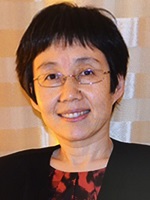
Liying Zhang is an attending and Director of the Diagnostic Molecular Genetics Laboratory at Memorial Sloan Kettering Cancer Center. Dr. Zhang supervises the clinical diagnostic testing of inherited cancers that can reduce cancer risk through prevention or early detection as well as guide treatment selection and clinical trials. Dr. Zhang has led the development and implementation of various new molecular diagnostic tests, including the cancer predisposition testing based on the MSK-IMPACT large panel tumor: normal NGS assay. Dr. Zhang’s research has focused on cancer clinical genomics and the molecular characterization of genetic variant of uncertain significance which provides critical information for improved cancer management. Dr. Zhang has authored many manuscripts and reviews on various molecular genetics/pathology topics that were published in prominent scientific journals. Outside MSKCC, Dr. Zhang severs on seven NIH-ClinGen Expert Committees that lead the revision and optimization of ACMG/AMP guidelines. Dr. Zhang received M.D. from Peking University and Ph.D. in Molecular Biology and Biochemistry and M.S. in Bioinformatics from The Johns Hopkins University. She then pursued research and clinical fellowship training at MSKCC. Dr. Zhang joined MSKCC as a faculty member in 2005 and was promoted to attending and member in 2017.

Wanying Zhang, MD, is a molecular genetic pathology fellow at Columbia University Irving Medical Center. She received her medical degree in China, followed by postdoctoral research at Northwestern University focusing on molecular mechanisms and chemoprevention of chronic inflammation-driven carcinogenesis; And later on, at Weill Cornell Medical College focusing on concurrent inactivating constitutional and somatic mutations in ADPKD genes. She completed her pathology residency at Columbia University Irving Medical Center/New York-Presbyterian Hospital and was board-certified for anatomic pathology. Her current research interest is to improve the current available bioinformatic approaches for more precise detection of gene fusions in solid tumors.

Yaolin Zhou, MD, is Director of Molecular Pathology and Assistant Professor of Pathology at the University of Oklahoma Health Sciences Center (OUHSC). She trained at Duke Sanford School of Public Policy, Mayo Clinic, University of Alabama at Birmingham (UAB), and Cleveland Clinic. She was Chief Quality Resident at UAB and member of the Cleveland Clinic Enterprise-Wide Test Utilization Committee, for which she developed a “one-button” ordering approach (doi: 10.5858/arpa.2017-0031-OA). Dr. Zhou’s experience at various institutions and interest in quality led her to create a new model for quality improvement. EPIDEM represents the steps of quality improvement: exploration, promotion, implementation, documentation, evaluation, and modification (doi: 10.1093/ajcp/aqy089 and 10.1093/labmed/lmy066). As director of OUHSC Molecular Pathology, Dr. Zhou applies EPIDEM to create molecular testing pathways for more efficient, evidence-based patient care. She also chairs the OU Physicians Quality Committee, is secretary of the Pharmacy and Therapeutics Committee, and co-founded the Stephenson Cancer Center Molecular Tumor Board. Dr. Zhou regularly presents to diverse audiences about test utilization and quality improvement. She has received research awards from USCAP, ACLPS, ASCP, and American Academy of Neurology, and her community leadership has been recognized by Duke University, Arnold P. Gold Foundation, Mayo Clinic, and College of American Pathologists. Because of her dedication to helping healthcare professionals across medical disciplines, Dr. Zhou was honored as an ASCP Choosing Wisely Champion (2017) and 40 Under Forty (2019). Since Dr. Zhou first joined AMP in 2014 as a pathology resident, she has served on the AMP Membership Affairs Committee and moderated the AMP Companion Meetings at USCAP 2018-2019. Dr. Zhou is grateful for her mentors and friends in the AMP community and the EPIDEMic of improved patient care we are creating together.

Justin Zook, PhD, leads the Human Genomics Team at the National Institute of Standards and Technology and is co-leading the Genome in a Bottle Consortium’s work developing authoritatively characterized human genomes to benchmark sequencing methods. He developed methods to compare and integrate whole genome DNA sequencing data from multiple platforms and sequencing runs to characterize the first whole human genome Reference Material. He is now leading the GIAB Analysis Team work combining short, linked, and long read sequencing technologies to characterize structural variation and challenging regions of the genome. He is an Informatics Representative to the Association for Molecular Pathology Clinical Practice Committee. In addition, he was Chair of the Global Alliance for Genomics and Health Benchmarking Team, which recently published best practices for benchmarking genome sequencing results.